Summer Camps Part 1: Young writers explore the world and themselves
While many summer camps focus on games, entertainment, and competition, the Women Writing for (a) Change summer camp in Bloomington gave young girls a voice to express themselves. Fourth through eighth graders used writing to better understand themselves and the world around them.
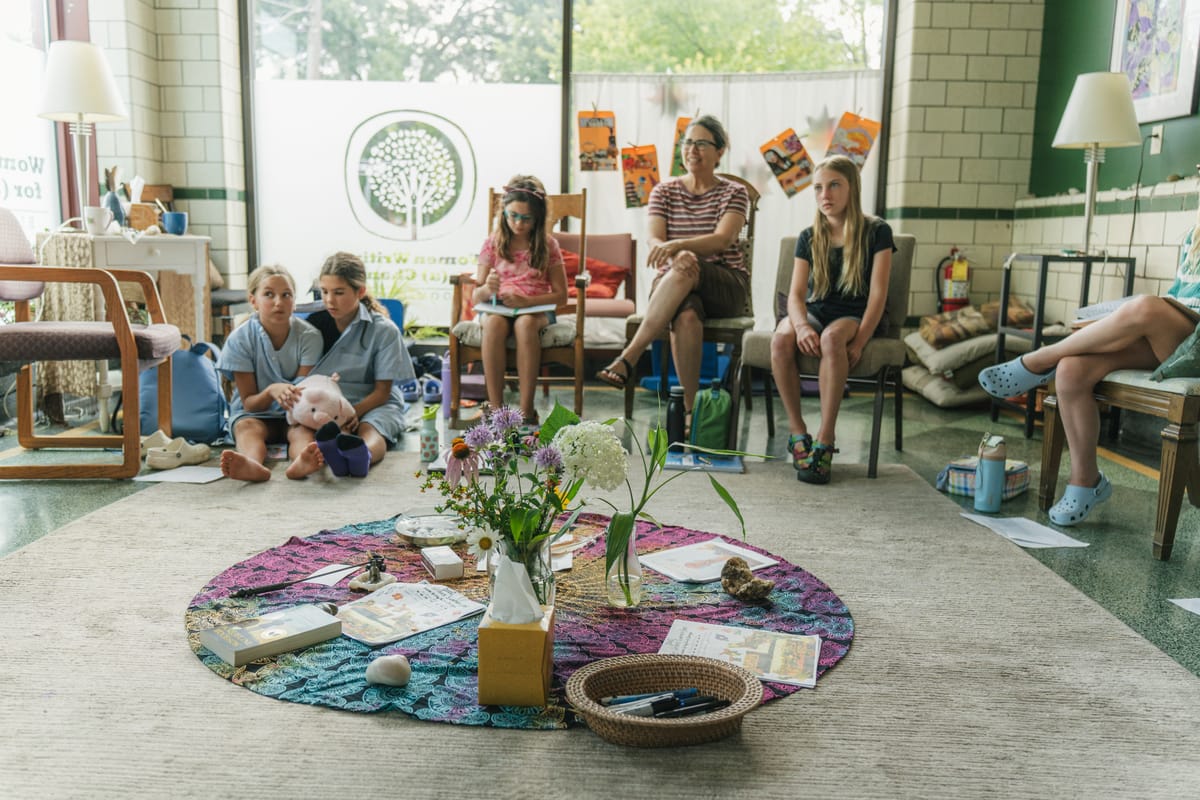
Summer Camps Part 2: Leading through games
Summer Camps Part 3: Self-expression
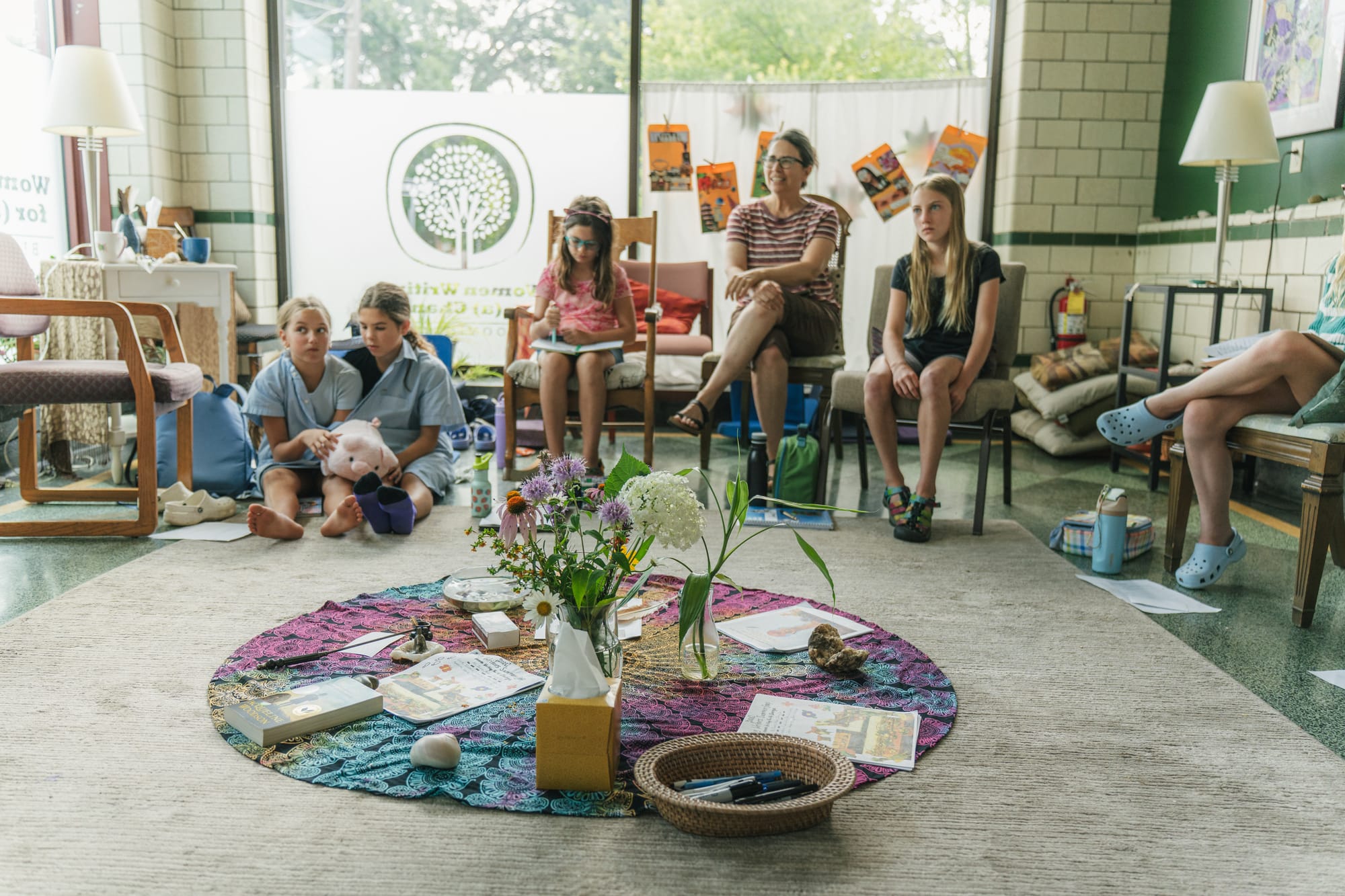
While many summer camps focus on games, entertainment, and competition, the Women Writing for (a) Change summer camp in Bloomington gave young girls a voice to express themselves. Throughout the week-long camp, rising fourth through eighth graders used writing to better understand themselves and the world around them.
The nonprofit organization held two summer camp sessions this year, one in June and the second in July. The camp featured a mixture of writing time, craft time, and other activities. But mostly, camp facilitator Ali Meyer said, the program gives the girls time to write on their own, and provides group readings and discussions. She said these opportunities help students learn to listen to others, and give and receive feedback.
This year’s camps were based on the theme “Adventure Writing.” Last week’s session included two adult facilitators, one high school volunteer, and six campers. (June’s camp had a larger group of 14 girls.) Each day began with a ritual: Everyone is seated in a circle. A chime rings, everyone takes a breath, and a candle is passed around. An epigraph and poem are then read aloud by a camp facilitator to start the day. A talking stone is passed around, and each person takes turns repeating a line from the poem or epigraph that stood out to them.
Meyer emphasized the value of these read-back lines: they learn to lift up other people’s words. The candle is meant to help participants focus on their being present, and to allow them to think about what they hope to give to and receive from the circle. The candle is passed again at the end of each day, encouraging writers to think about what they will take home when they leave.
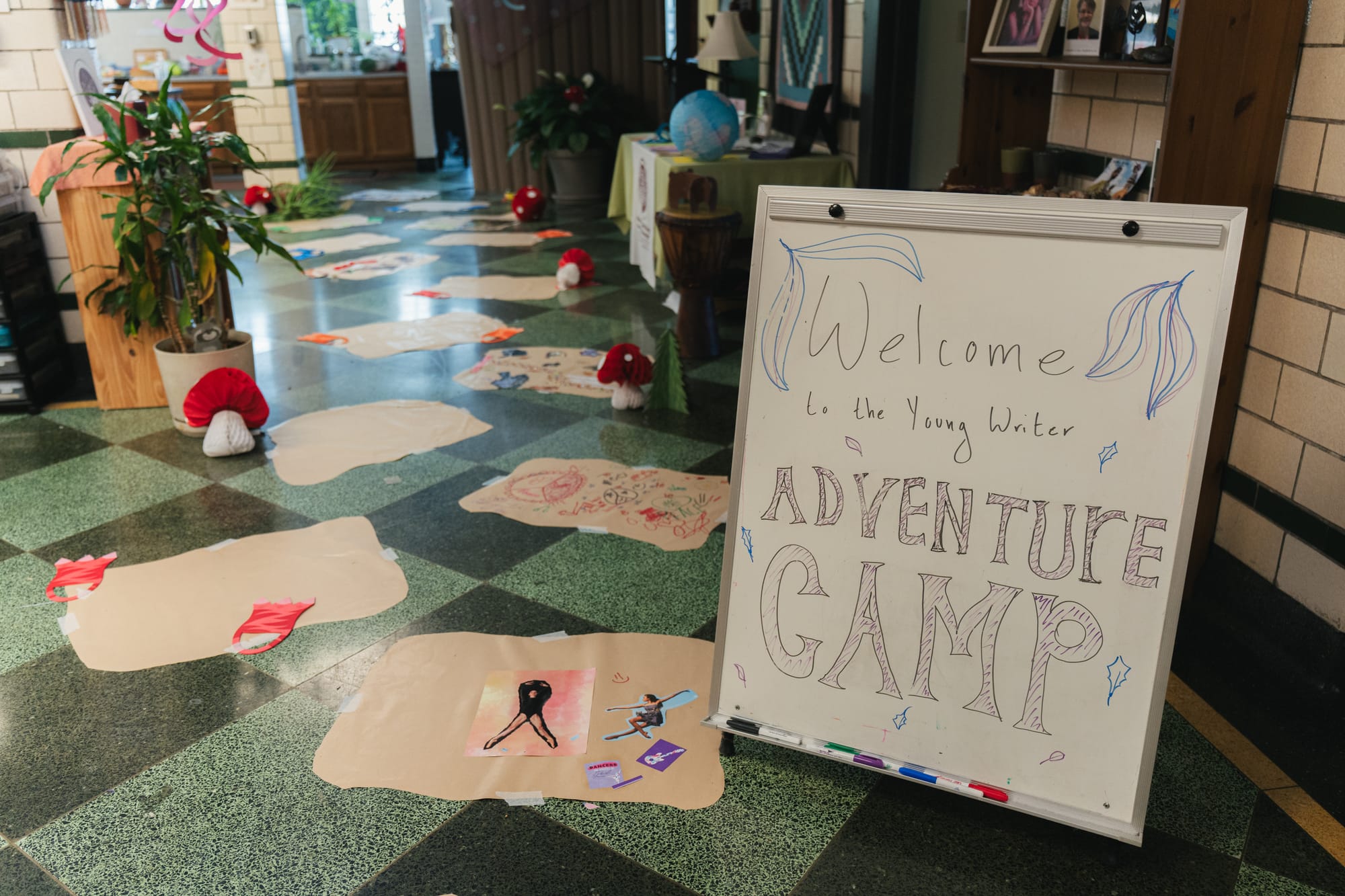
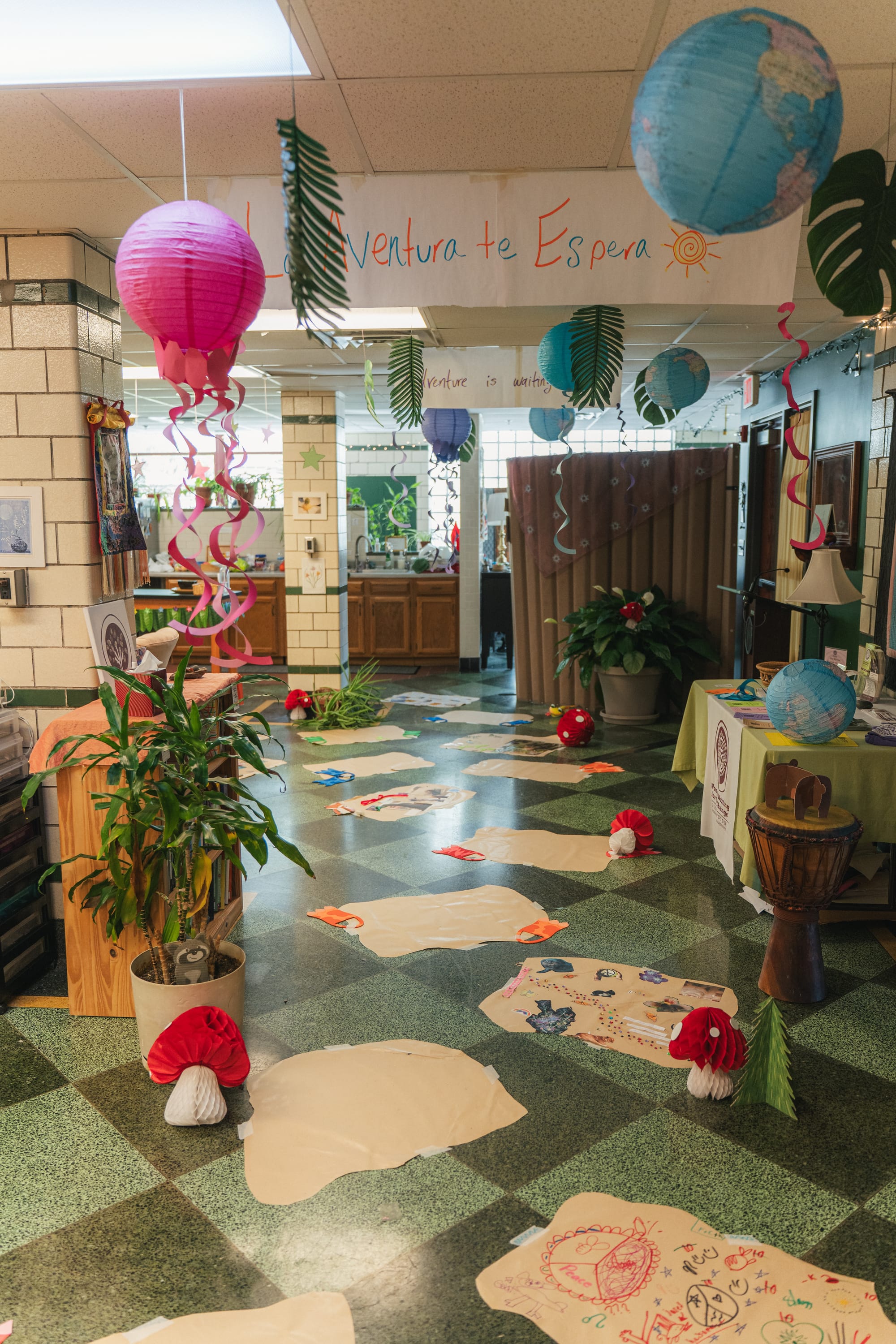
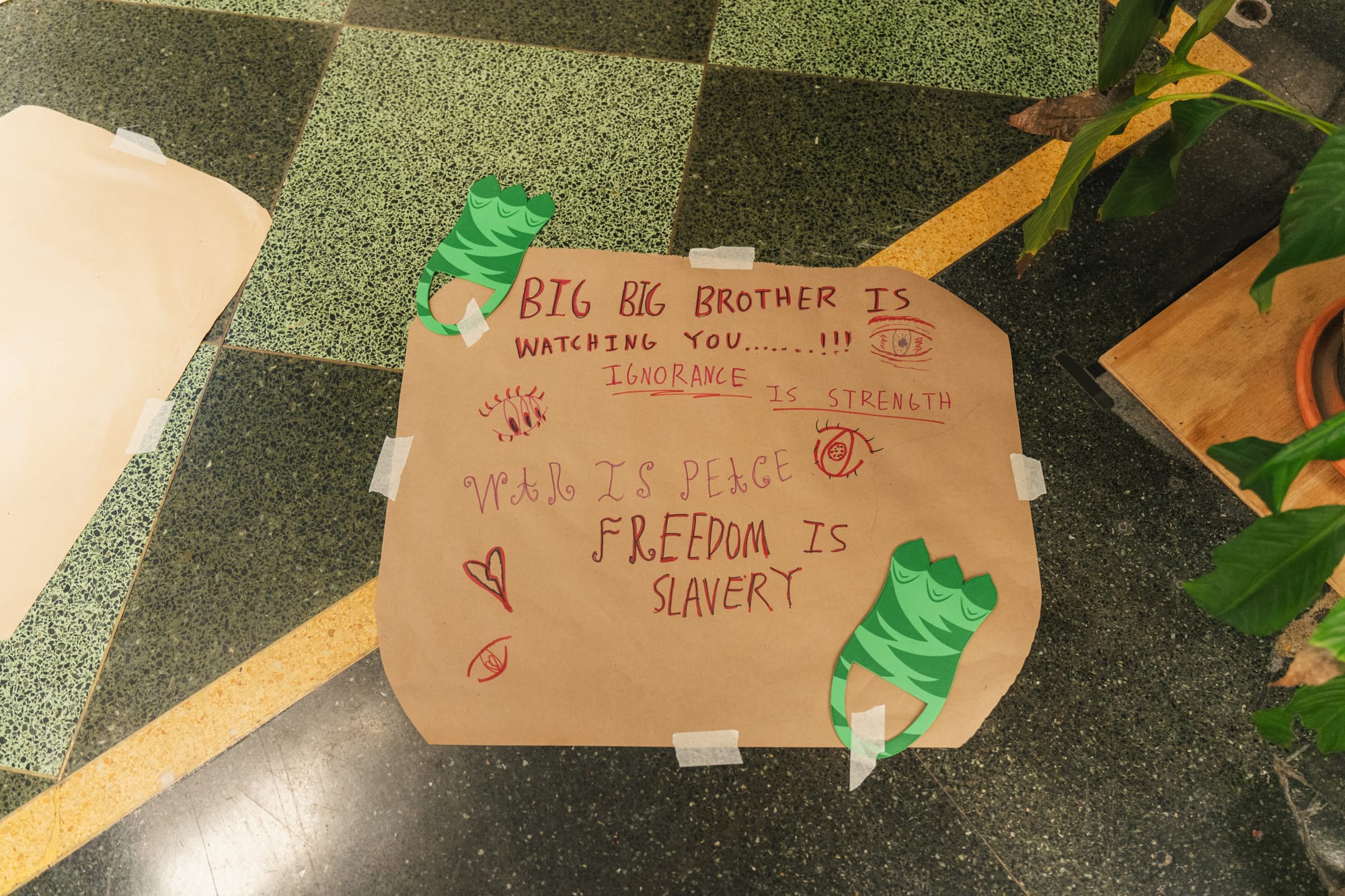
“Young Writer Adventure Campers” created stepping stones to guide their adventure. (Kelton O'Connell, July 10, 2025)
In addition to circle time, the camp featured a balance of activities, crafts, and small group discussions. Throughout the week, the girls designed paper stepping stones, representing their various adventures; paper hearts and stars that hang from the ceiling, with desires and wishes for themselves and for others. On Wednesday, campers spent the day out and about downtown Bloomington. On Thursday, they visited the playground at the Waldron, Hill, and Buskirk Park, across the street from Women Writing.
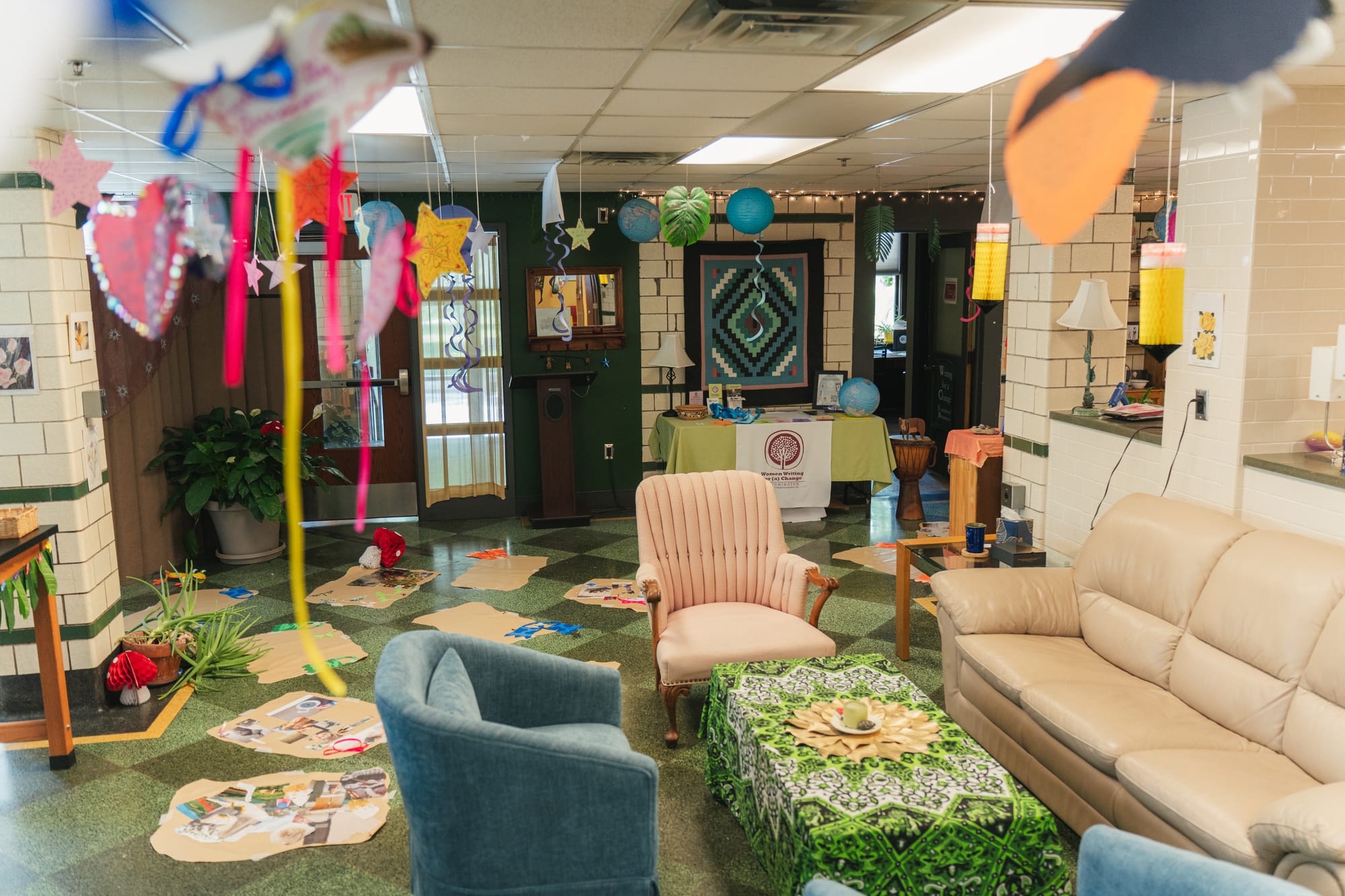
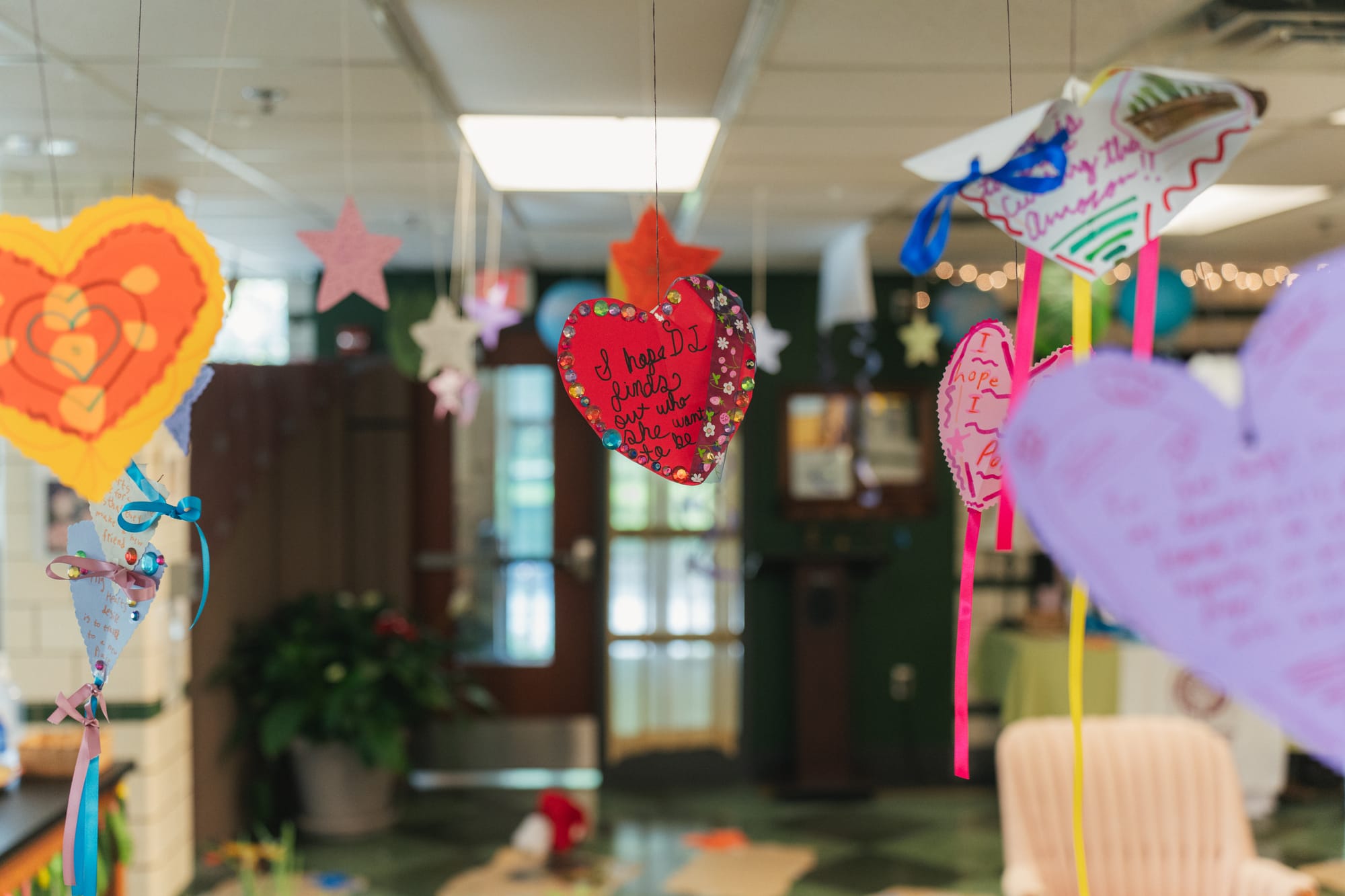
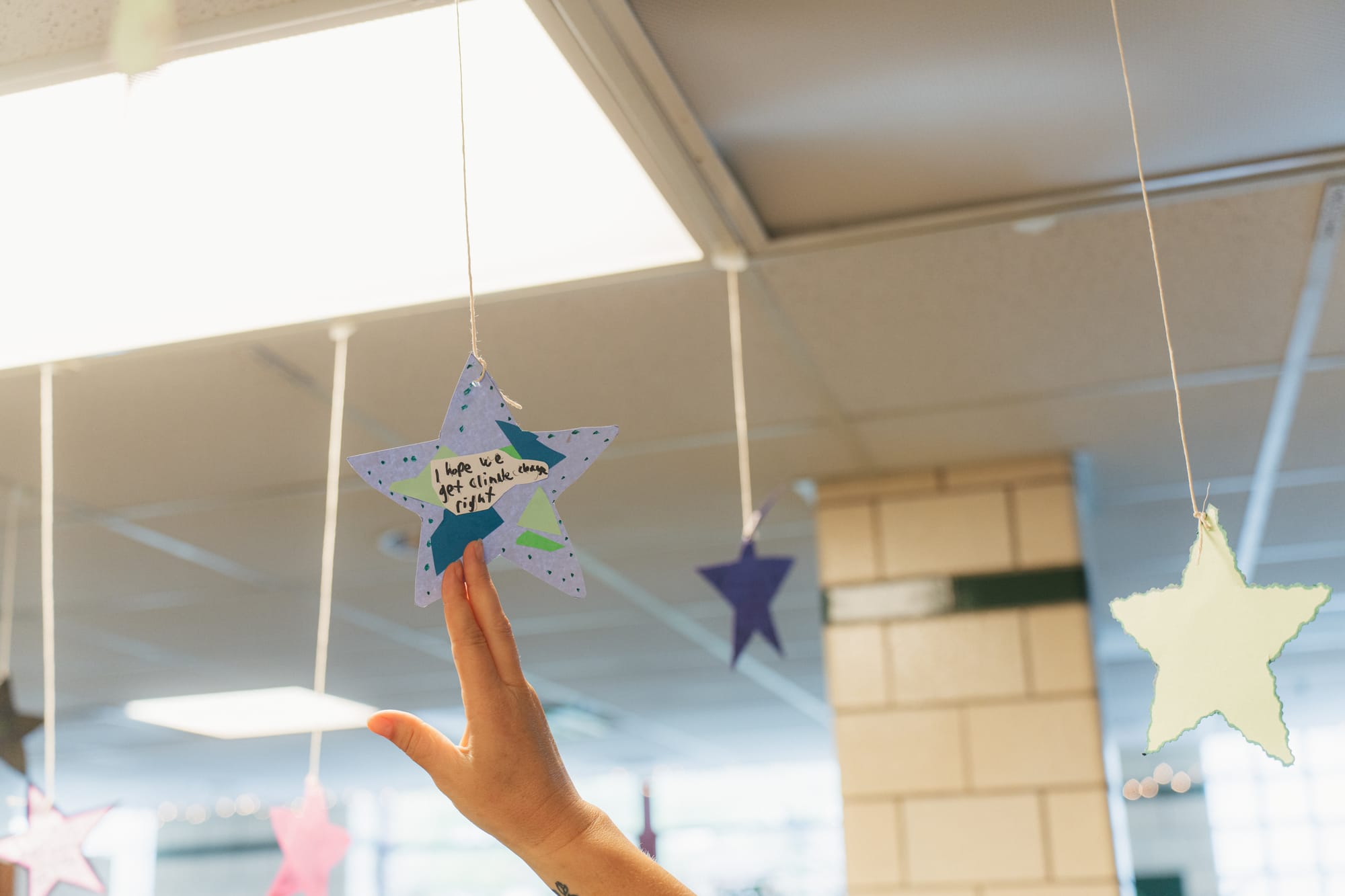
The camp space at the Women Writing for (a) Change youth summer camp is decorated with work from the campers. The stars are “wishes for yourself or someone else,” and the hearts represent “your heart’s desire.” (Kelton O'Connell, July 10, 2025)
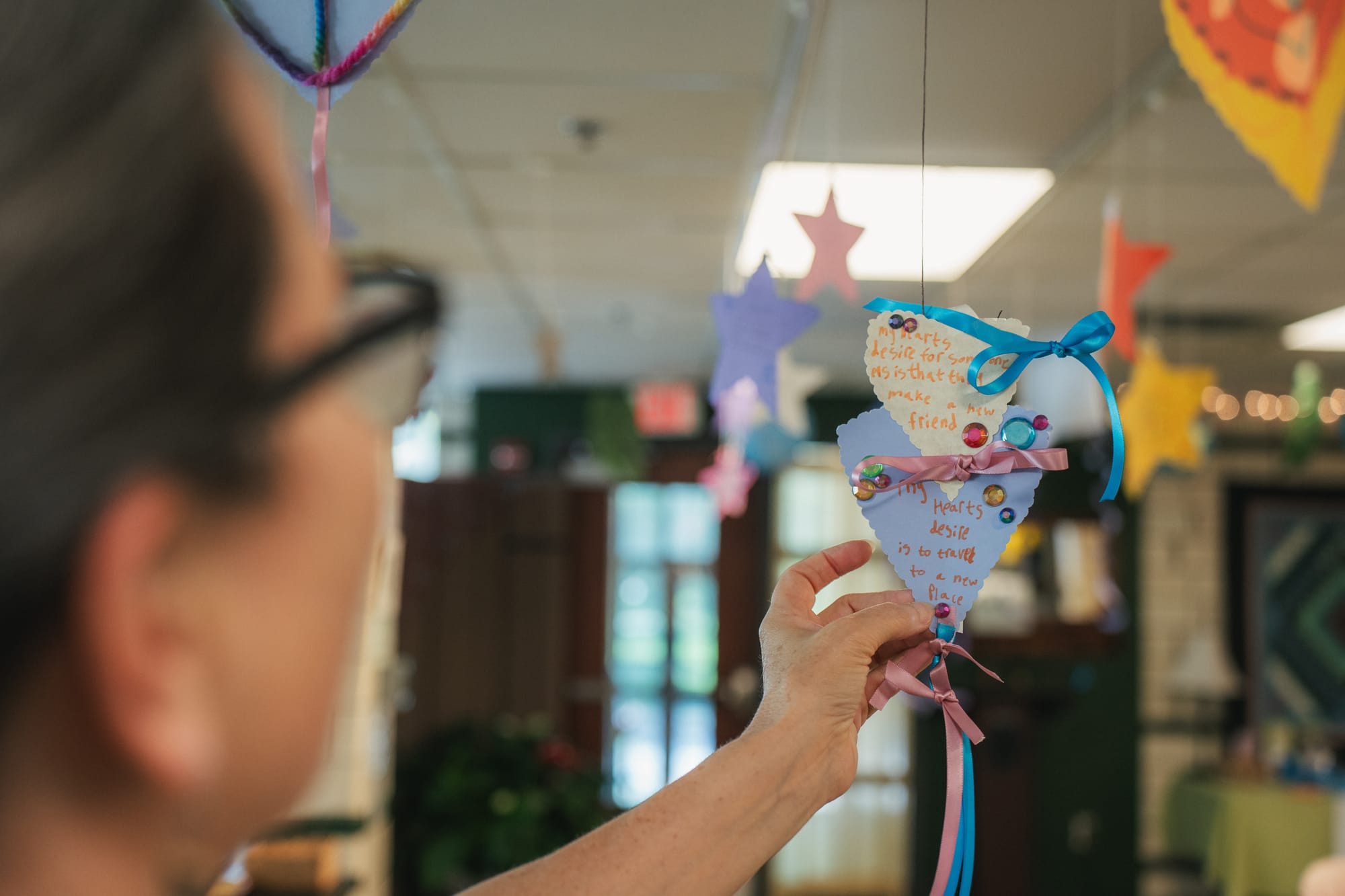
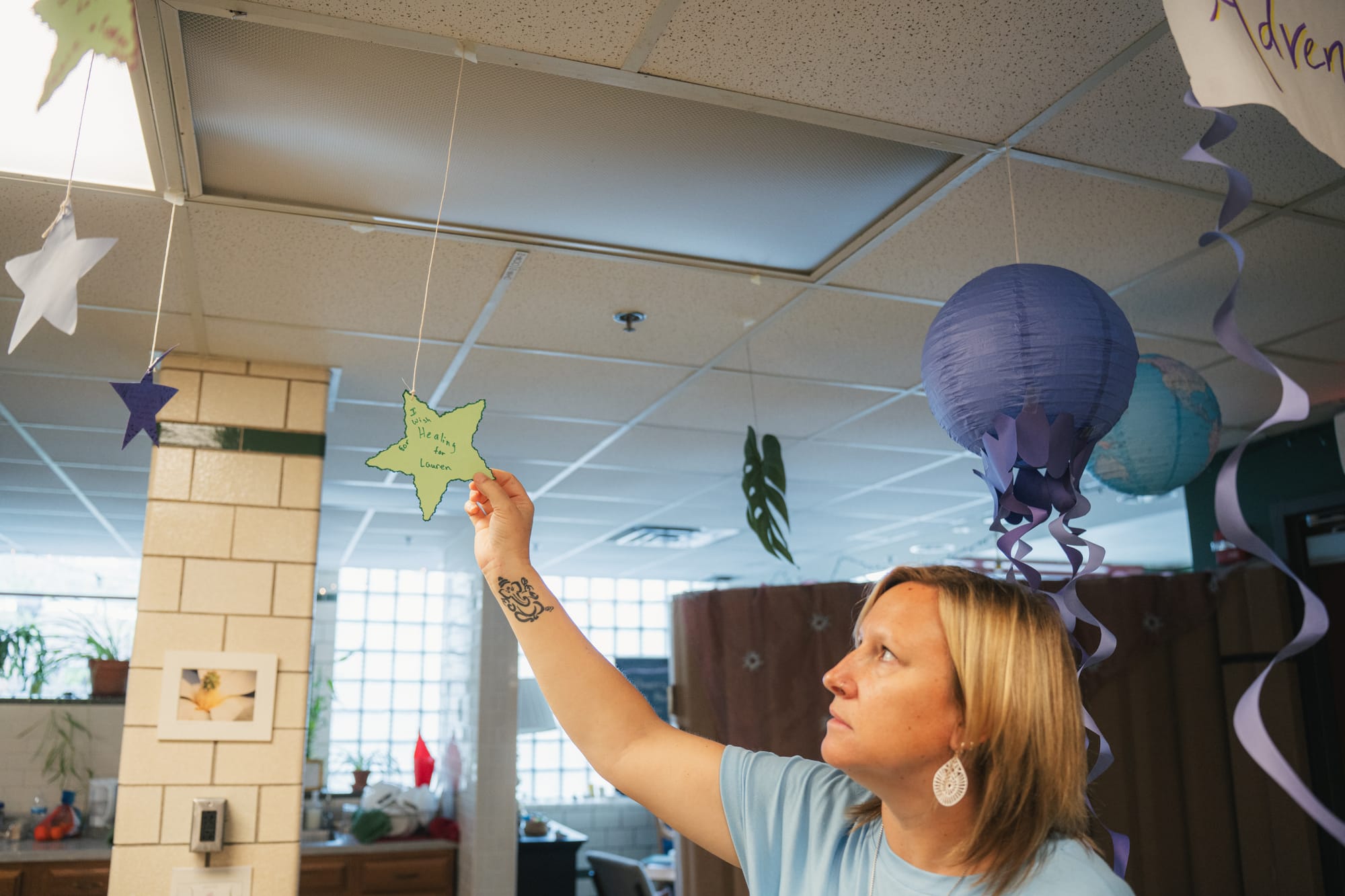
Left: Women Writing for (a) Change creative director Mary Beth O'Brien reads a “heart’s desire” piece. Right: Camp facilitator Ali Meyer reads a camper’s star ornament. (Kelton O'Connell, July 10, 2025)
Meyer said, “I think our structure is pretty balanced between reflection time, writing time, [and] outside activity. ... Even if it’s 15 minutes, just getting them up and moving them and coming back helps with the balance.”
One craft project was the creation of figures from a blend of nature- and human-made objects: twigs, nuts, feathers, and leaves.
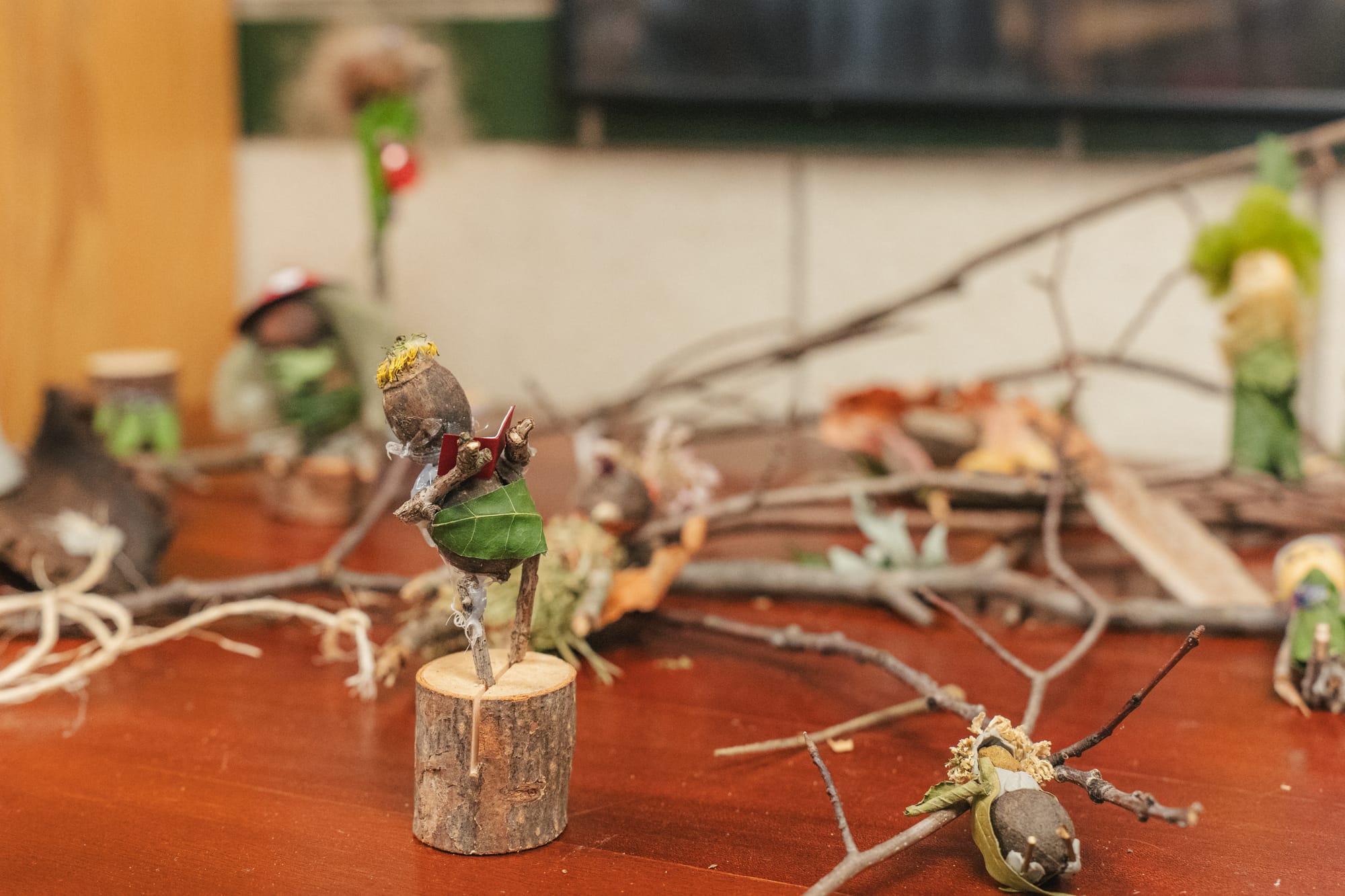
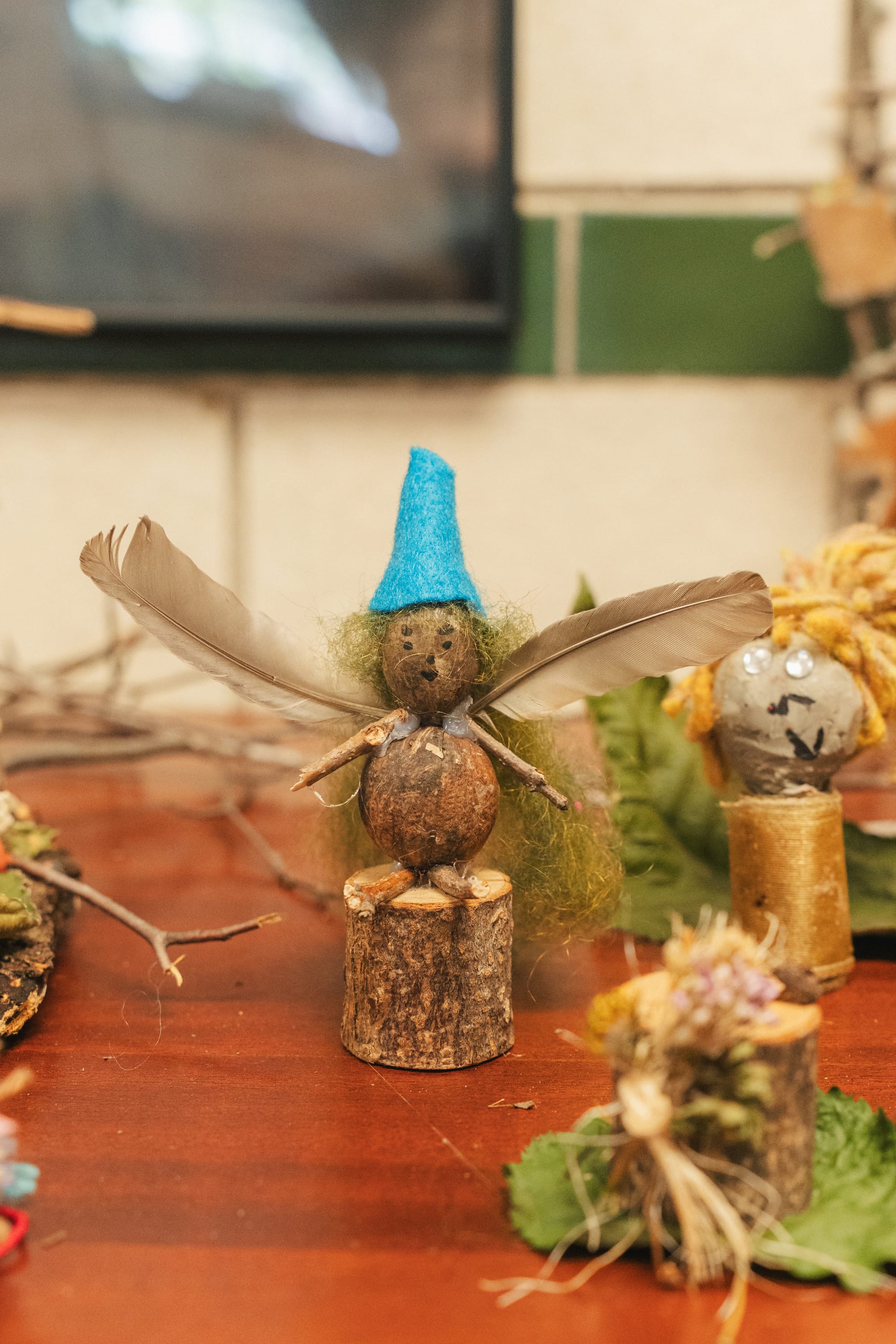
One craft project the Women Writing for (a) Change youth summer camp did was little figures, made by gluing various objects together. (Kelton O'Connell, July 10, 2025)
In small groups every day, campers have the opportunity to share their writing with a more intimate group. “This is where they practice the deeper feedback that they get,” Meyer said. “They can say, okay, ‘I want one true thing when I read my piece.’
“It’s a practice of knowing what you want. Picking something, communicating it, and then the rest of the group agreeing to give you that feedback,” she continued. “It’s just a ... safe space to take the risk to share your writing.”
Meyer said, “I know a lot of adults who have never shared their writing out loud. And so for [the campers] to learn how to just be present with each other and listen and ask for ... feedback, ... that’s a big thing.”
Campers go from the small group to the large group, where they practice that process in a bigger setting. This built up to Friday, when writers’ parents and siblings were invited to a public read-around. Families and guests participated in the same rituals as the campers—epigraph and poem, read-back lines, readings, and candle.
When I visited the camp on Thursday (July 10), they had just finished lunch and invited me to join the circle. I took a seat, introduced myself, and asked them about their experiences at camp. They passed the talking stone clockwise.
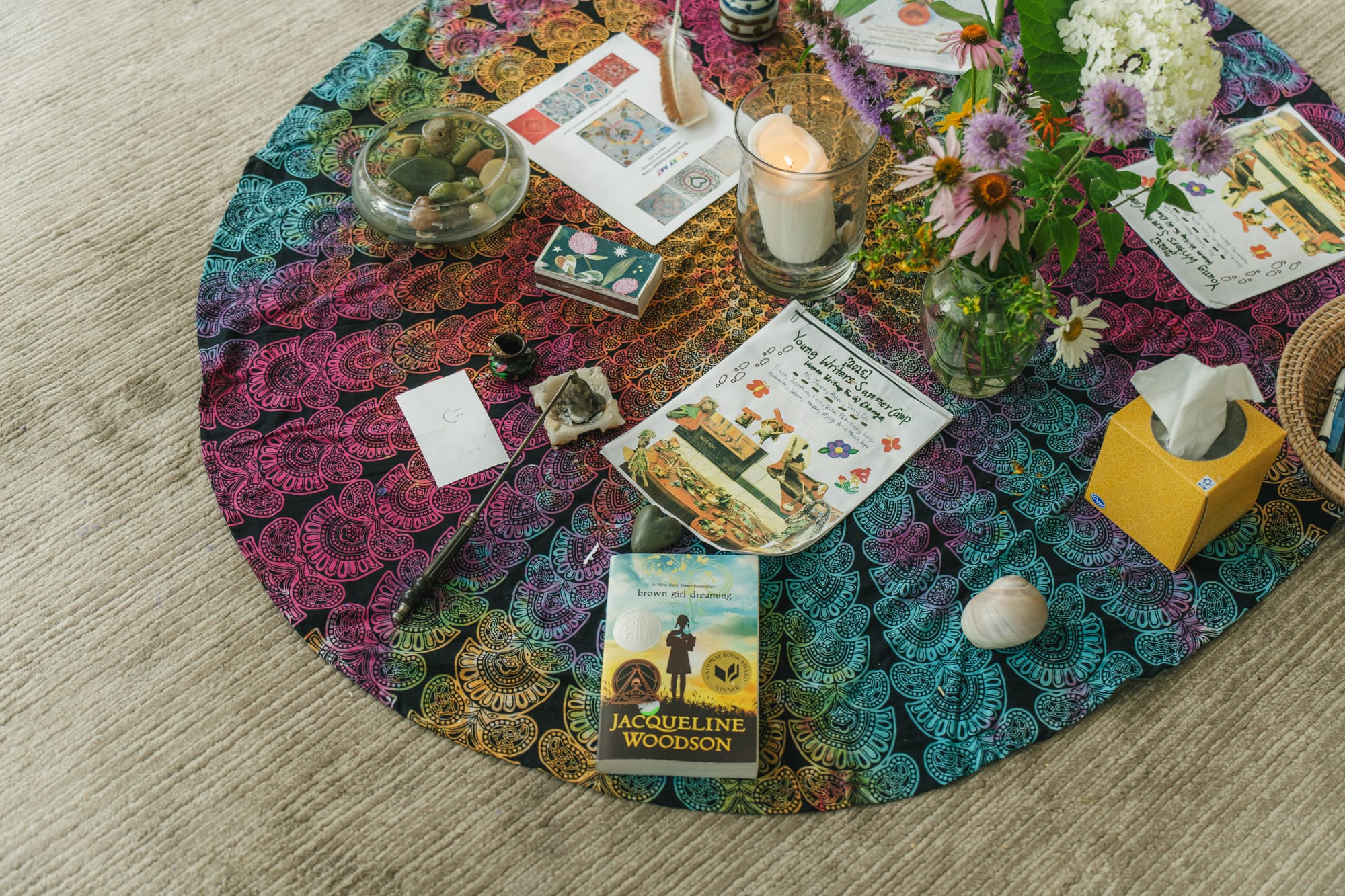
Every camper told me about their passion for writing. Many also said they enjoy the crafts and activities. They've all been experimenting with various types of writing, from stories to journaling to poetry.
Lyle, a rising fifth grader, said the camp “has a lot of great writers, and there’s a lot of enthusiasm.” She continued, “It’s really nice to express myself.”
Rising sixth grader Emma said, “I really like getting to do something I love here, like writing, and getting to read out loud what I write so that I can fix mistakes or change anything. And I like getting to try new kinds of writing.”
Victoria Deckard, camp volunteer and rising high school junior, participates in all the activities with the campers. She said, “I write mostly poems, and I also write some fiction.” She continued, “I’ve been super impressed with everyone here.” She said a lot of the writing done at the camp is better than what her classmates produce in high school.
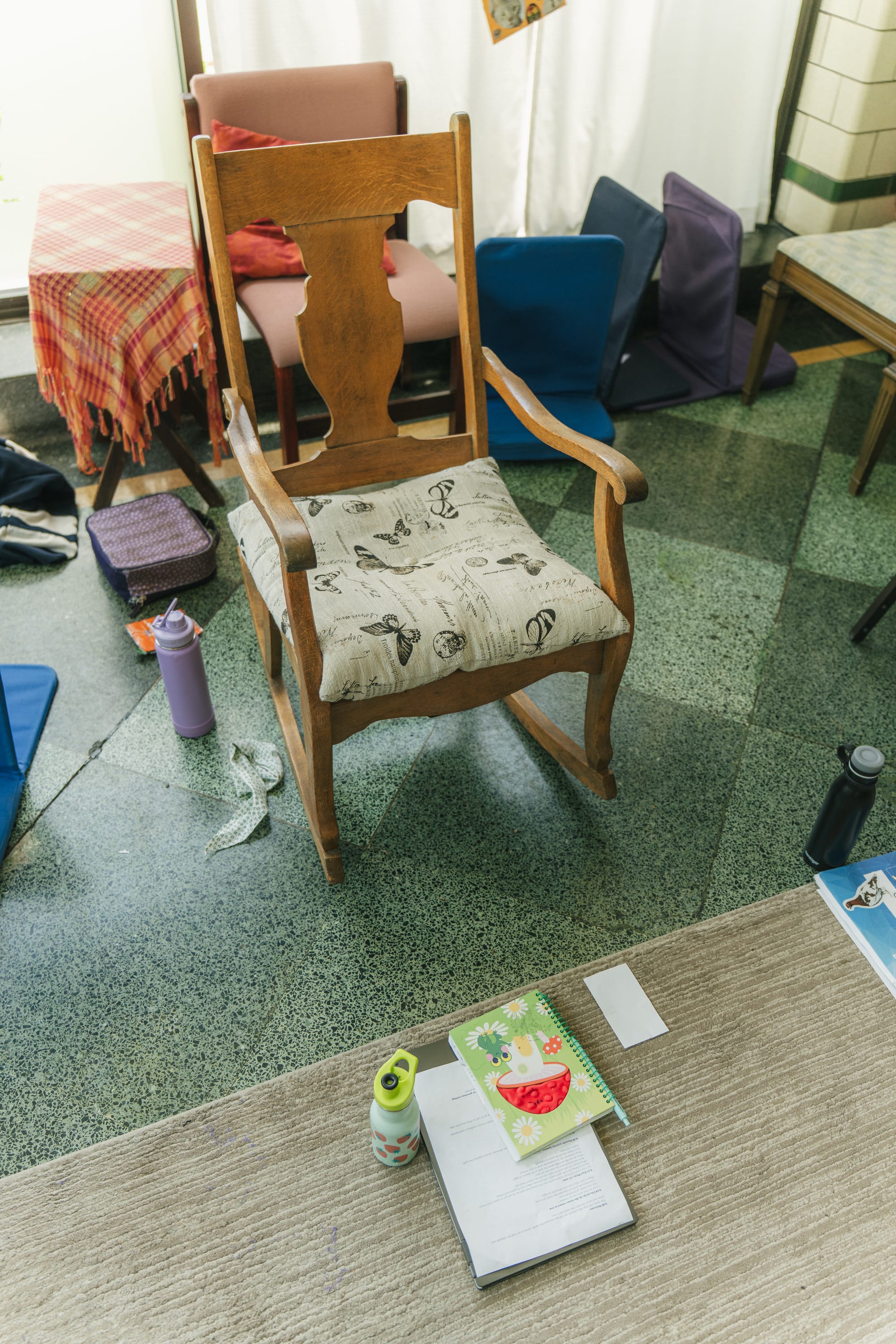
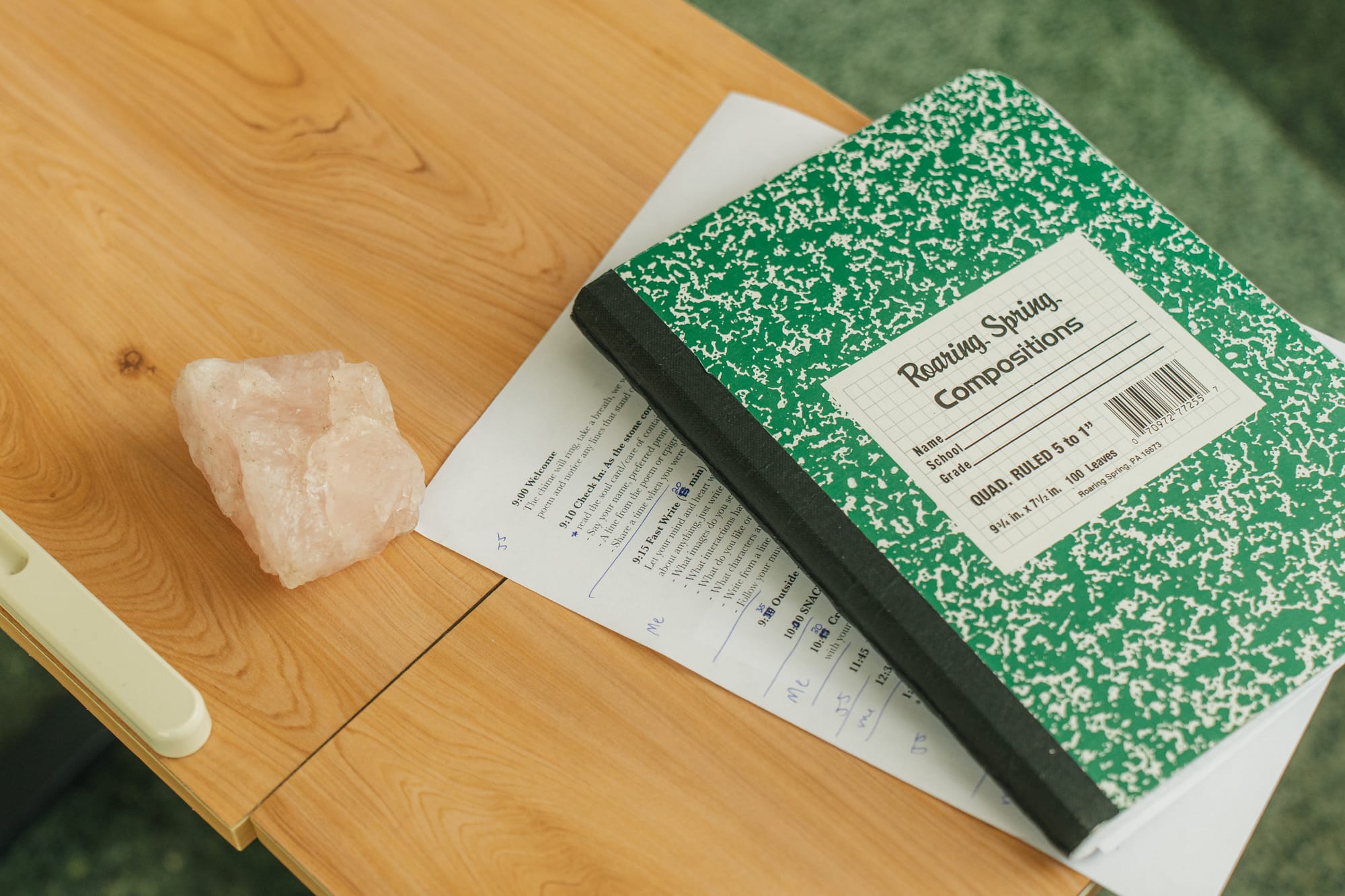
Scenes from the camp's large group circle. (Kelton O'Connell, July 10, 2025)
Adult facilitators also write with the girls during the camp. Facilitator Jamie Jackson said, “I love writing poetry mostly, and it’s mostly things I either am observing or processing. So sort of thinking through, in my life: feelings, emotions, thoughts, dreams, experiences—life.”
The facilitators worked to do simply that—facilitate. “We get out of the way,” Meyer said, referring to her role as one of the adults. Meyer and Jackson guide the girls, and participate in camp activities as role models.
Deckard said, “Everyone’s doing it together, which is really nice, because in school, there’s more of a power dynamic between the teachers and the students. It’s not as supportive.
“Here,” she continued, “everyone’s sharing everyone’s writing, and we’re passing around a candle and taking turns. ... Here, everyone will contribute. And it’s a supportive atmosphere.”
Deckard has enjoyed hearing and learning from the girls’ writing. “I feel like they approach [writing] differently than older people would,” she said. “Sometimes I feel like they’re more creative; they let themselves have more freedom with their writing.”
Public Reading
The public read-around on Friday (July 11) began the same way the camp began each day: an epigraph and poem. The epigraph was a quote by David Whyte, and the poem was by M. C. Richards.
Each camper read a piece at the podium—stories and poems of reflection, sadness, stars, and change.
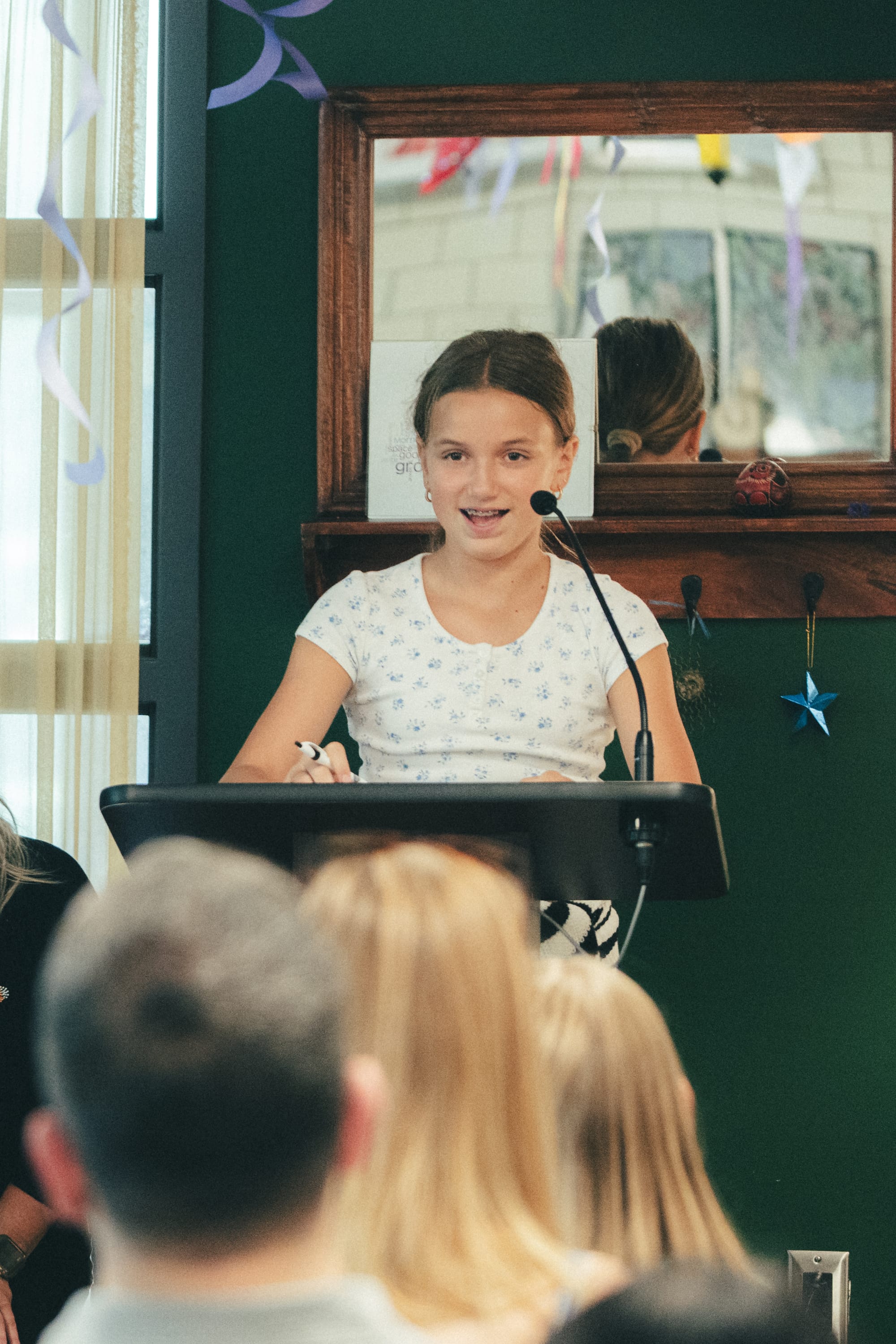
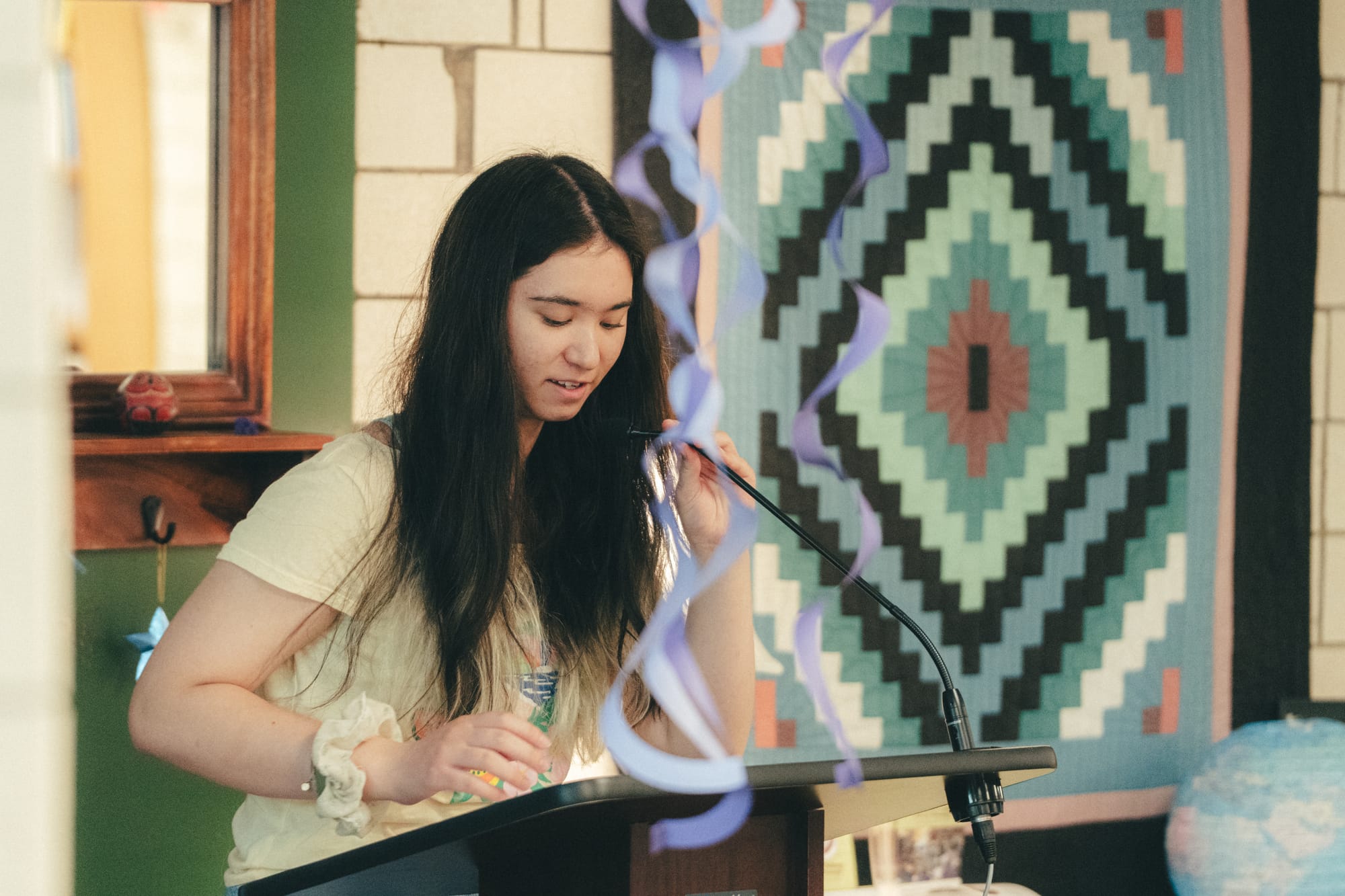
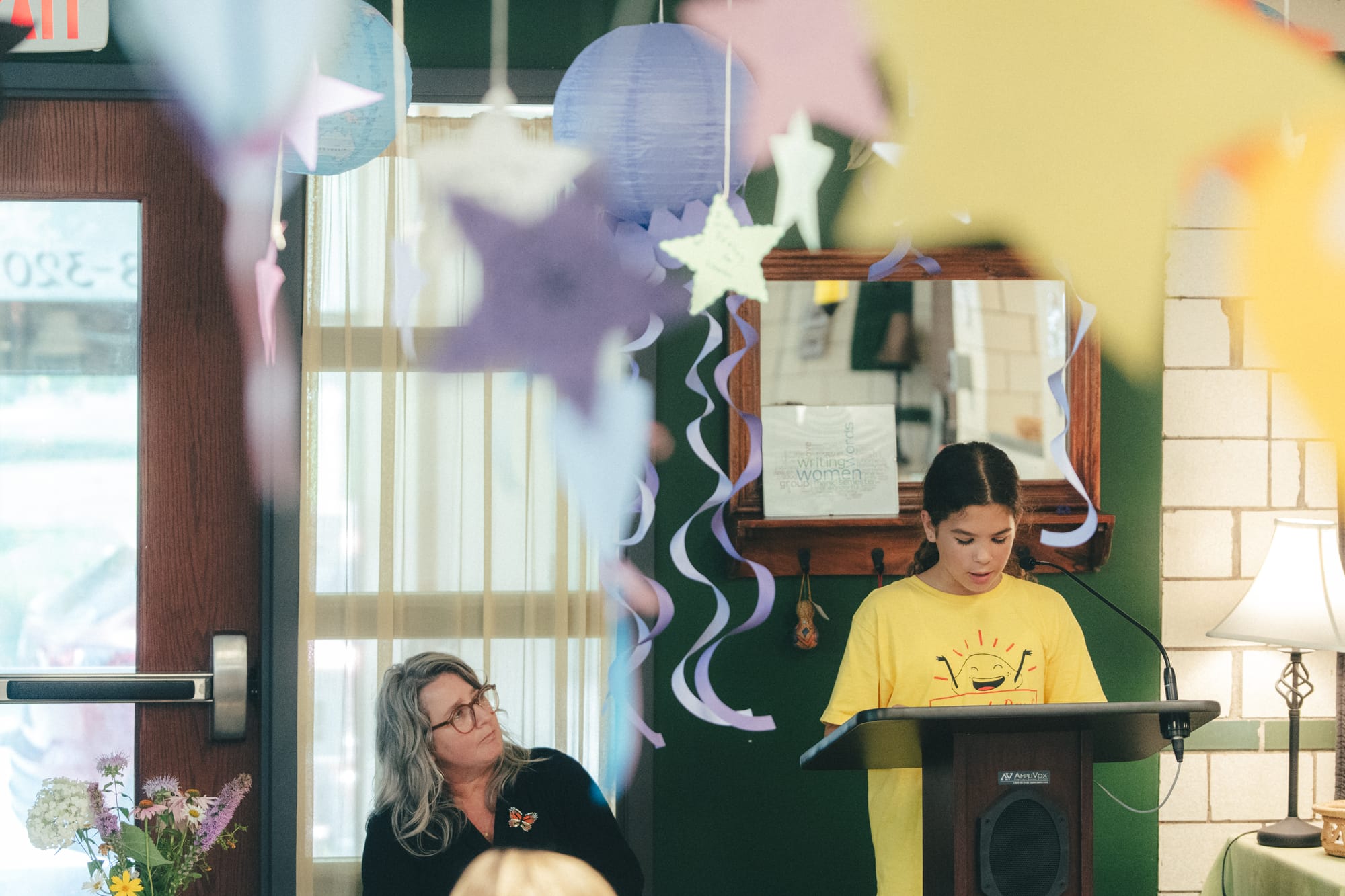
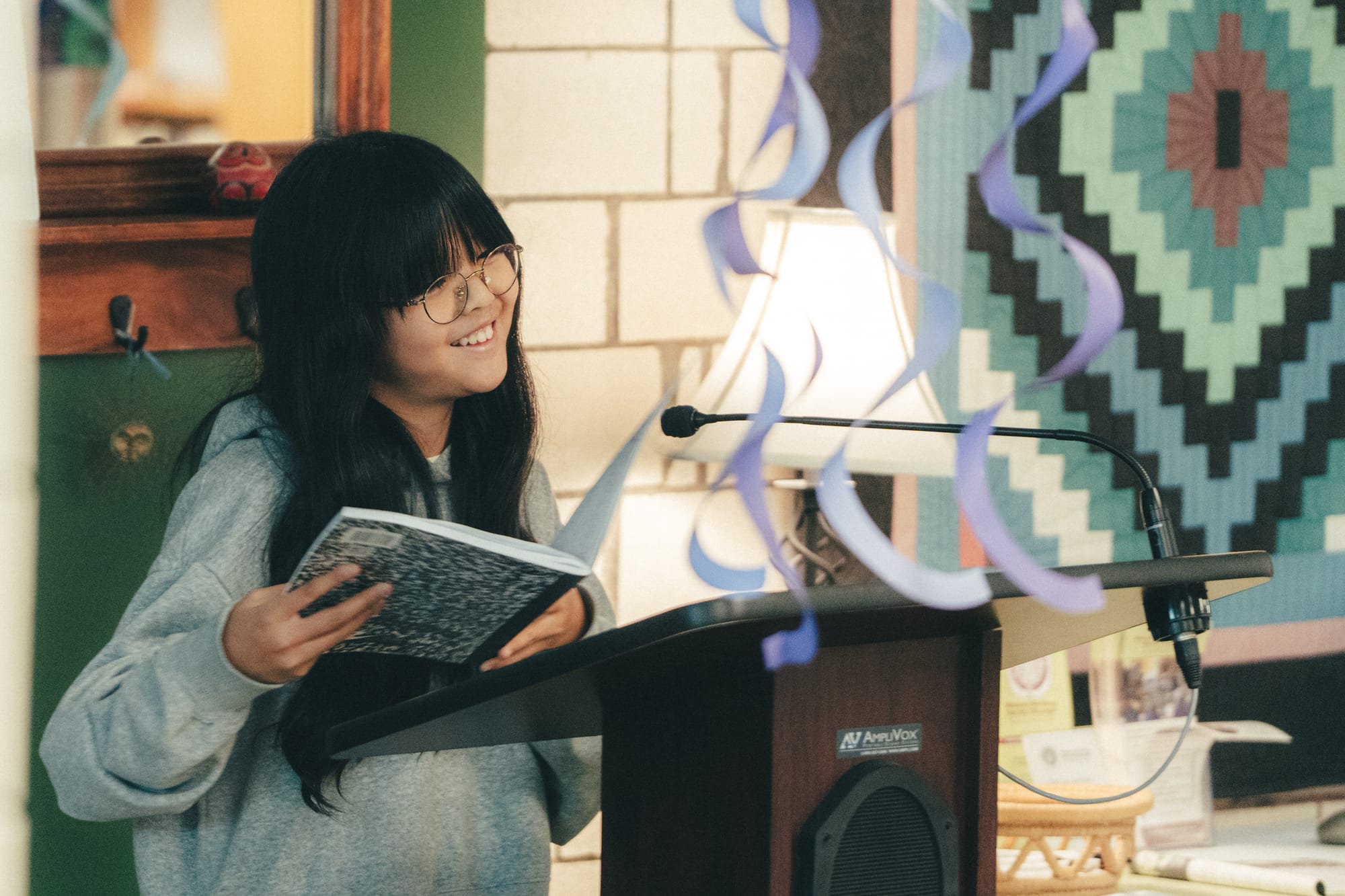
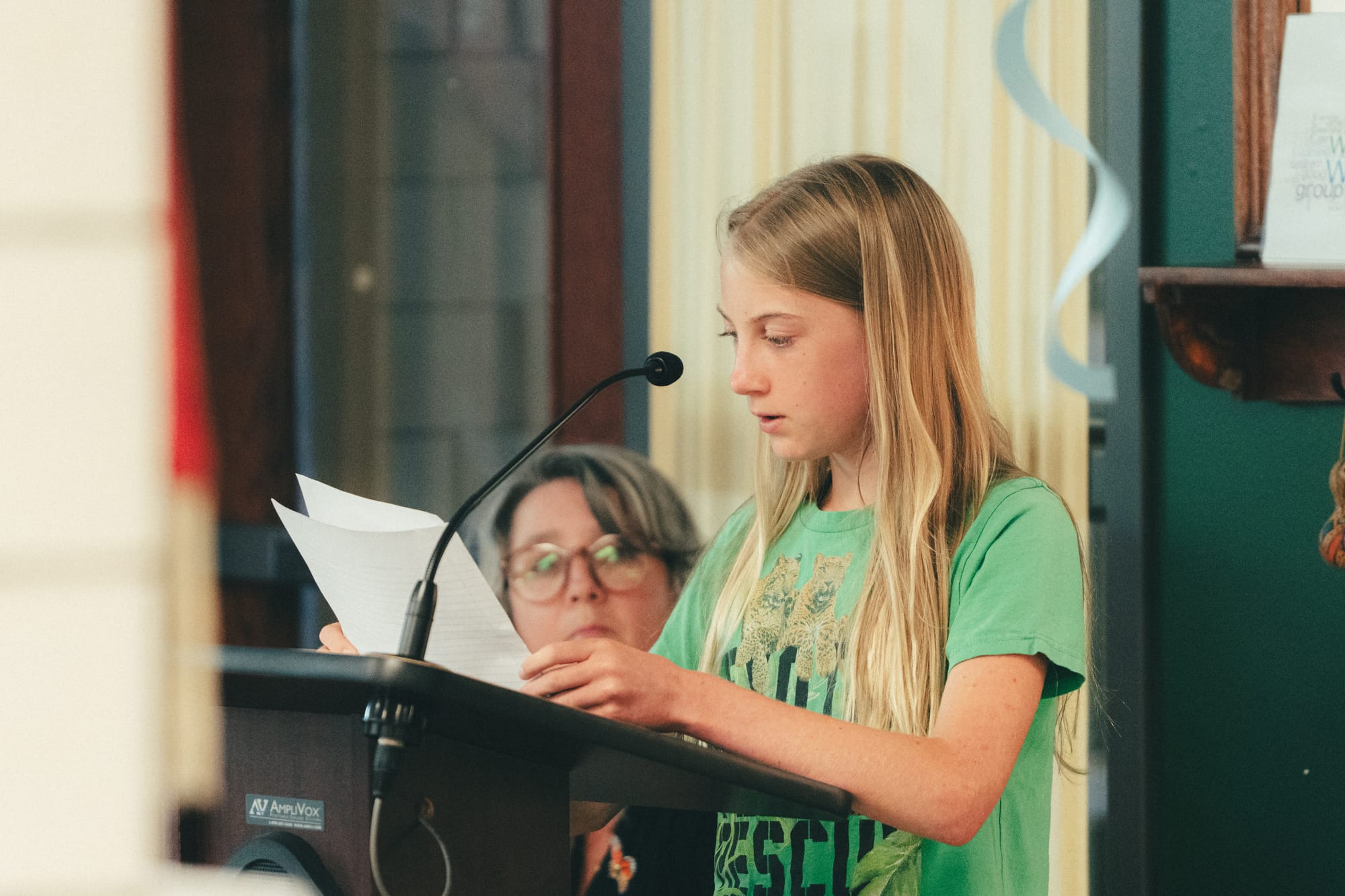
Young writers read their works aloud at the public read around that completed the camp. Left to right, top to bottom: Claire, Victoria, Fiona, Aoi, and Emma. (Kelton O'Connell, July 11, 2025)
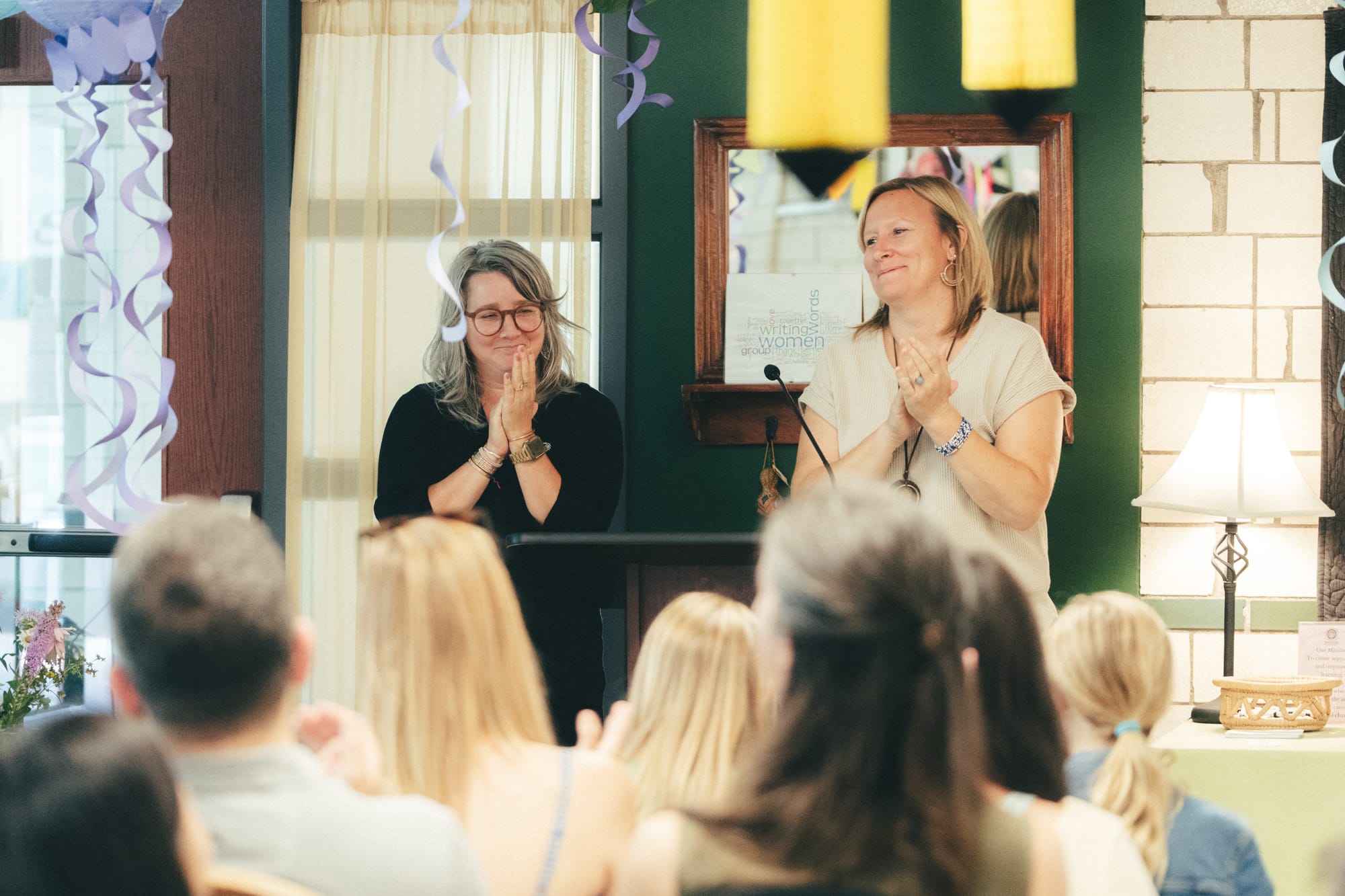
After the pieces were read, everyone stood in a circle for a round of read-back lines. At the start of Friday's read-around, everyone in the room was encouraged to jot down any phrases or lines that stood out to them, just as campers had been doing throughout the week. These lines and phrases were shared aloud by parents and campers, overlapping at times, but each was given space to be heard.
“It’s kind of a gift for the parents to be able to offer some of those lines back to their own, as well as other people’s kids,” said Meyer.
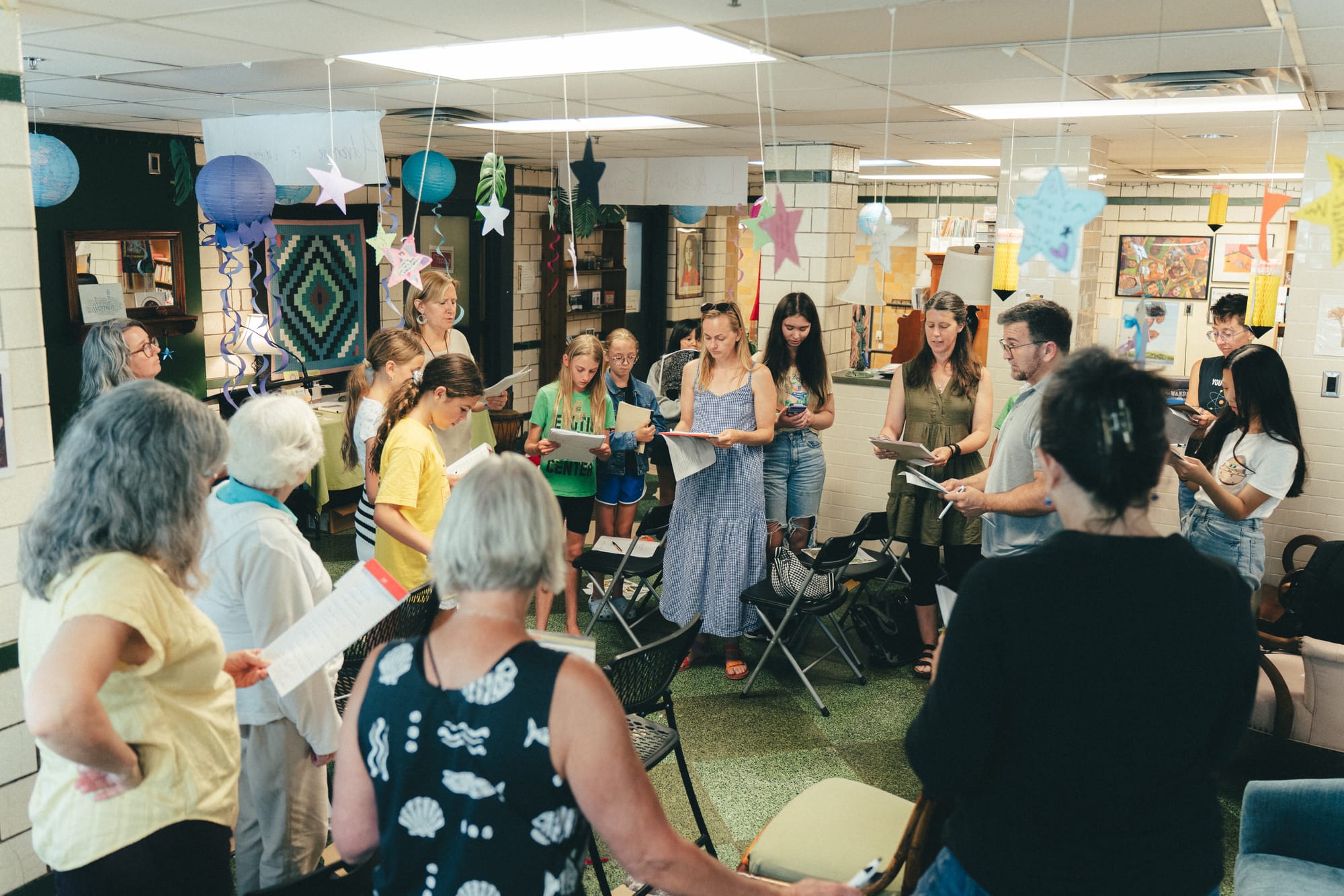
The read-around circle closed with a word offering. As the candle was passed around to each person, they shared a single word with the group.
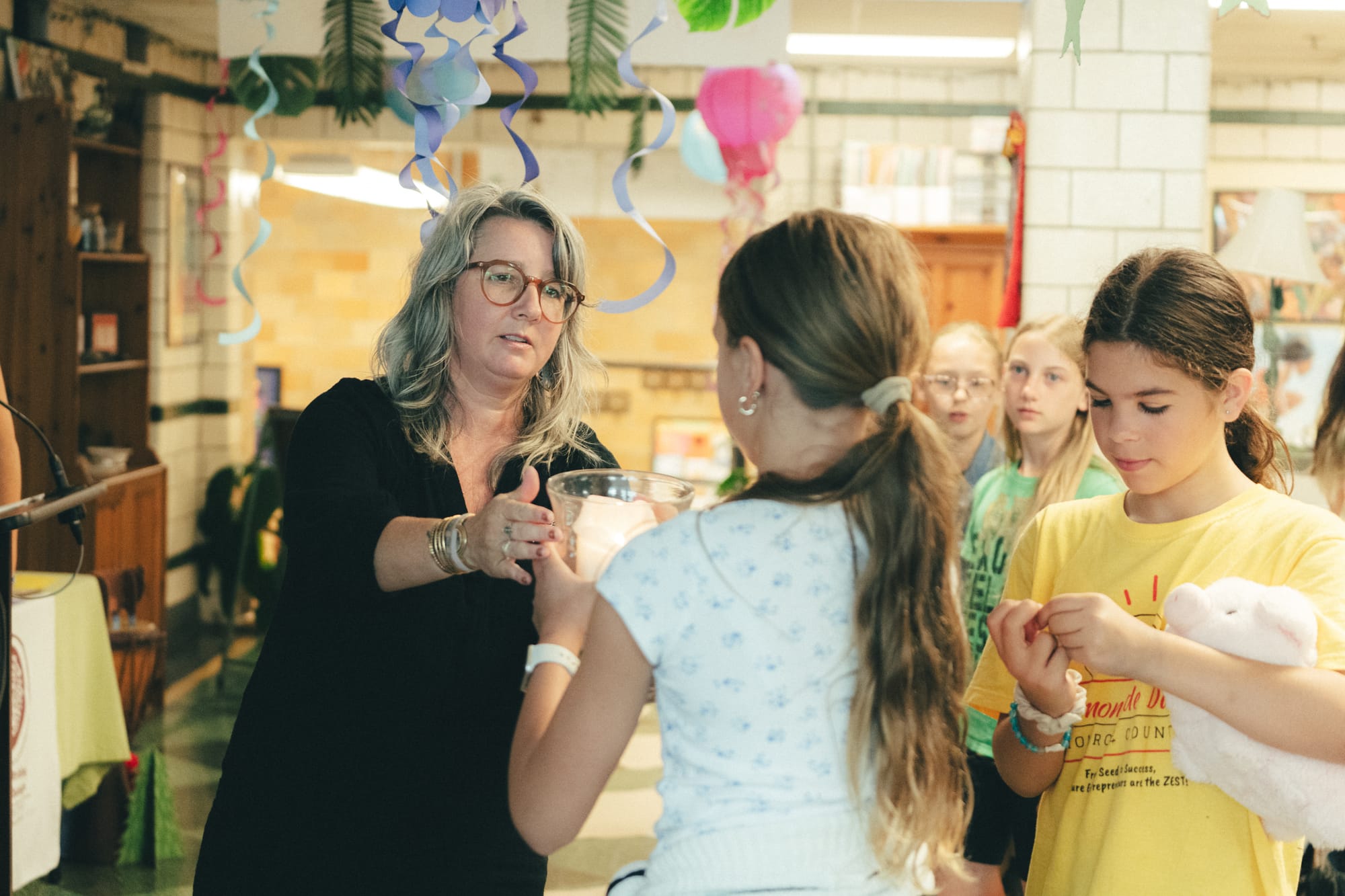
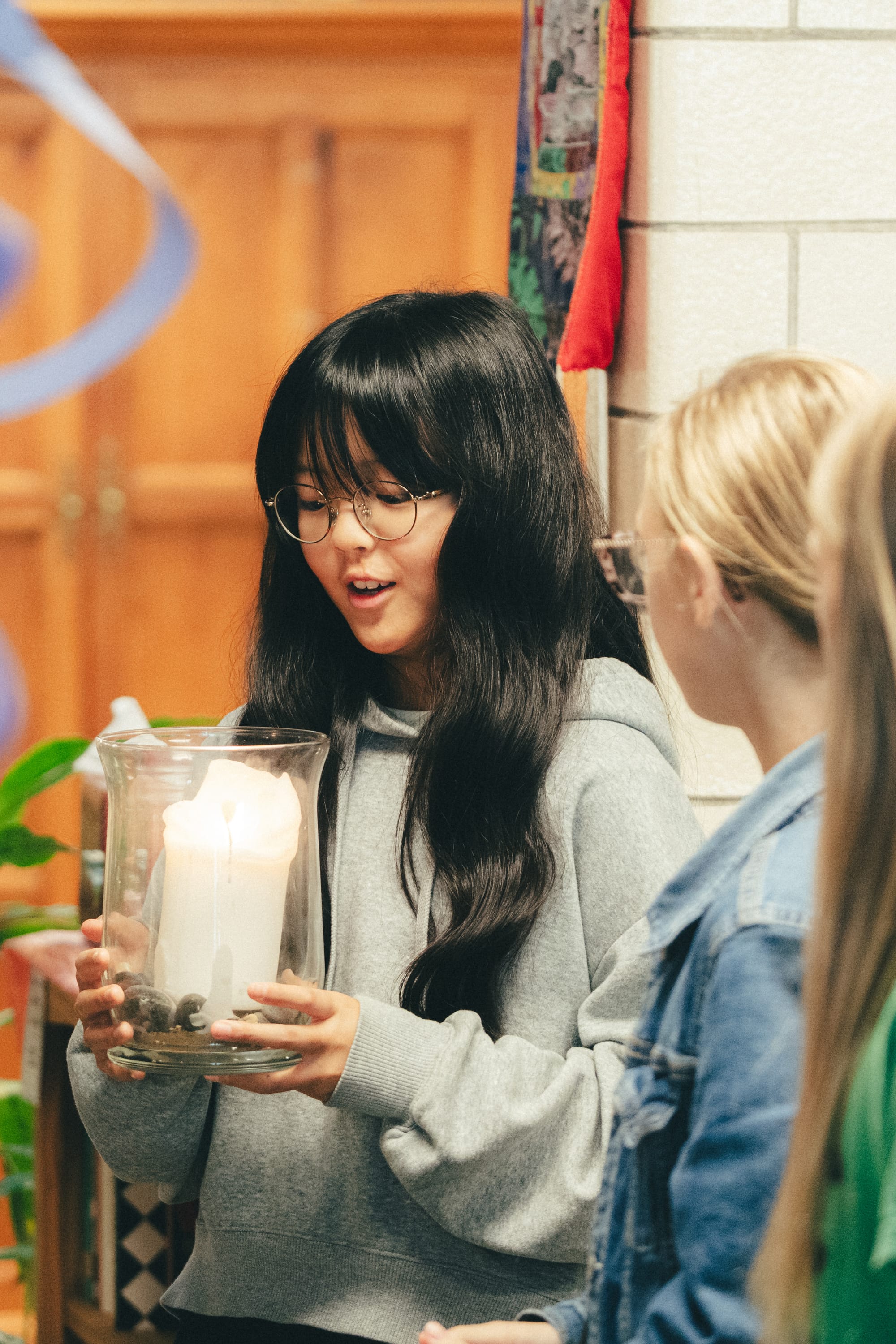
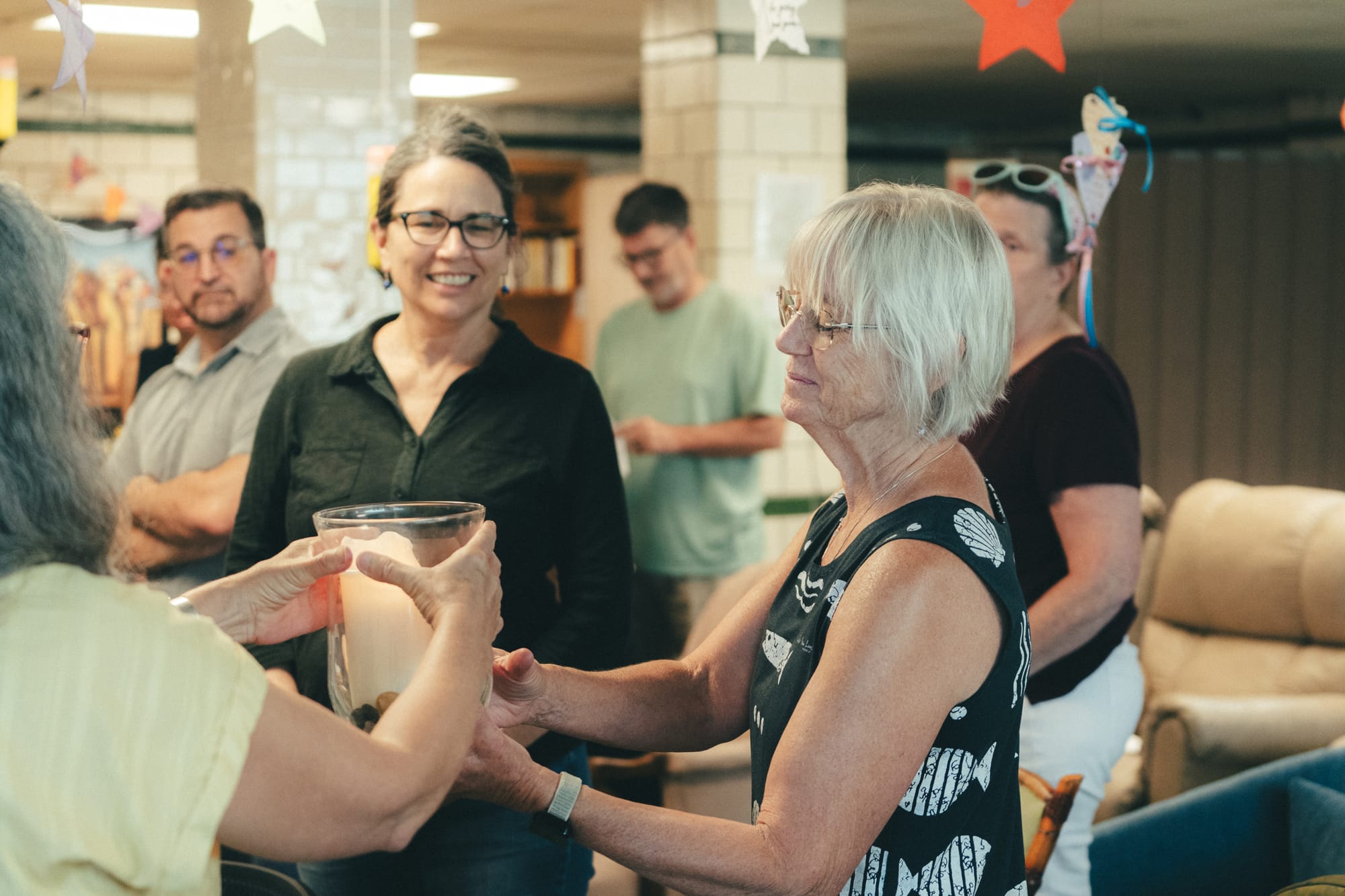
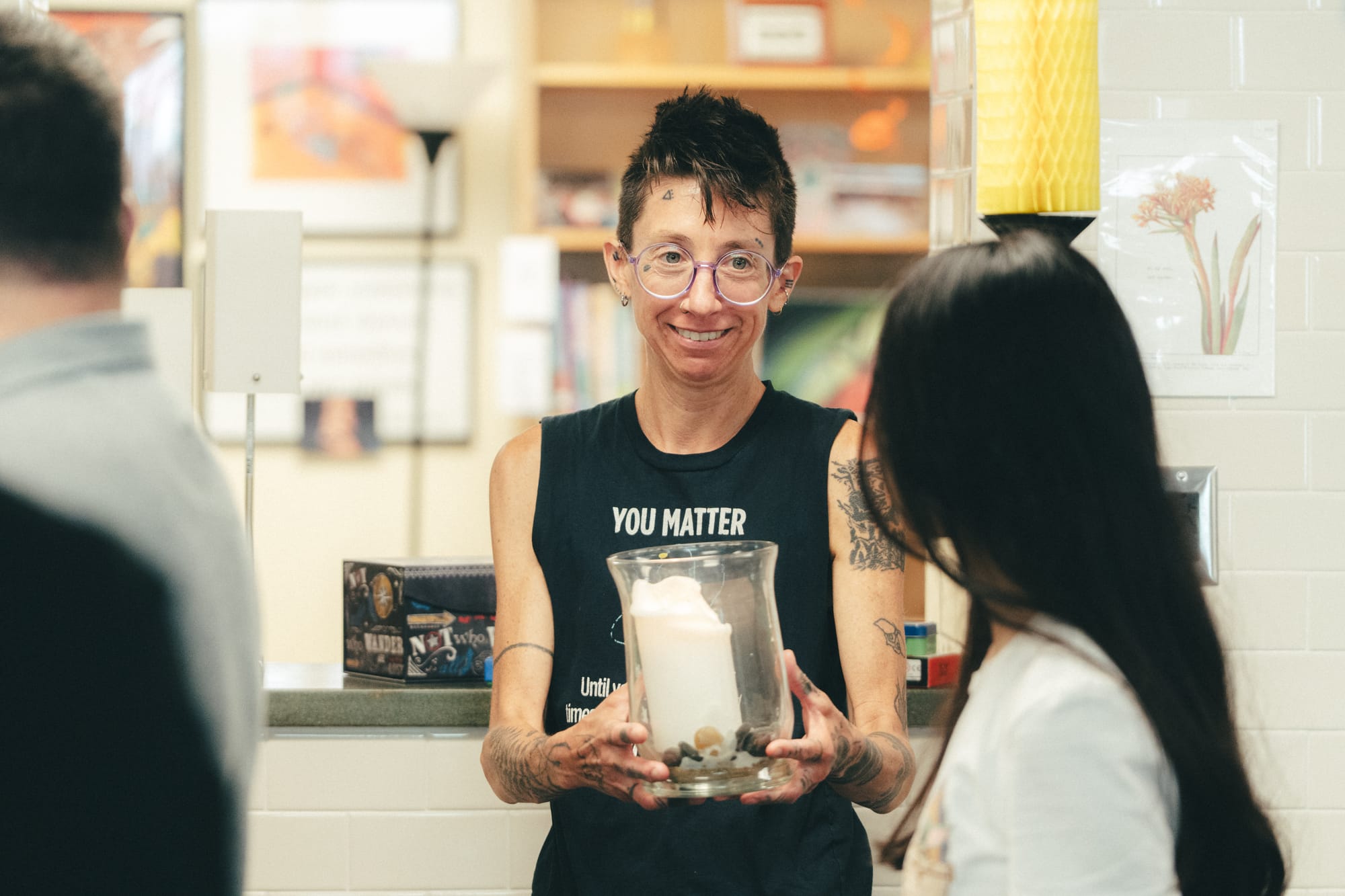
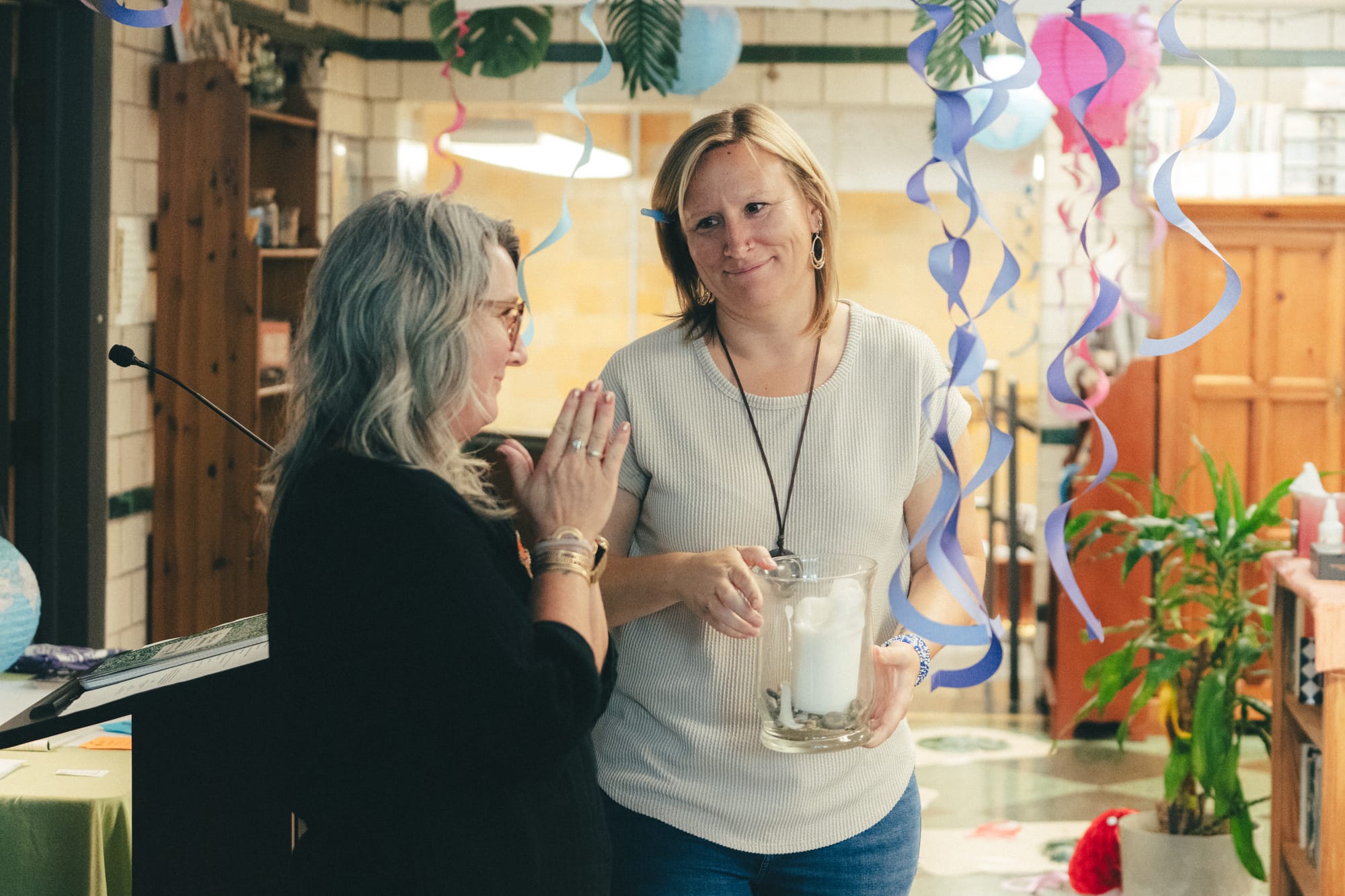
To close the circle, everyone offered a word to the group. (Kelton O'Connell, July 11, 2025)
Camp parent Jana Leigh said, “I was really struck by how much [the camp] lets the kids access their voices and have time to find what they’re really thinking about in their core.
Another parent, Krista Holmstrom, also a former Women Writing board member, has participated in the organization’s classes for about 10 years. “They’ve made it so accessible for these girls, and they’ve given them an opportunity to be in a place that’s not a classroom,” she said. “Like my daughter, for instance. I don’t think she thinks of herself as a writer, but then being here, I think she’s now seeing that anybody can write and that their ideas are important.”
She said she thinks it’s important for people to have a “creative outlet that is devoid of the pressures of school, and performance, and all the things.” She continued, “It’s just a place for everybody ... to just kind of explore—explore how they can express themselves creatively. ... This is a place to just explore without pressure.”
She also said she appreciates that the goal of the camp isn’t to come out with a product. “The experience itself is enough.”
To remember their time and fellow writers, Women Writing takes one submission from each camper and creates an anthology for each camp, which each girl takes home with them at the end of the week.
Works
The camp provides confidentiality for the young writers and their work. However, a few campers were willing to share their work with The B Square for publication. Below is a sampling of some pieces from the camp.
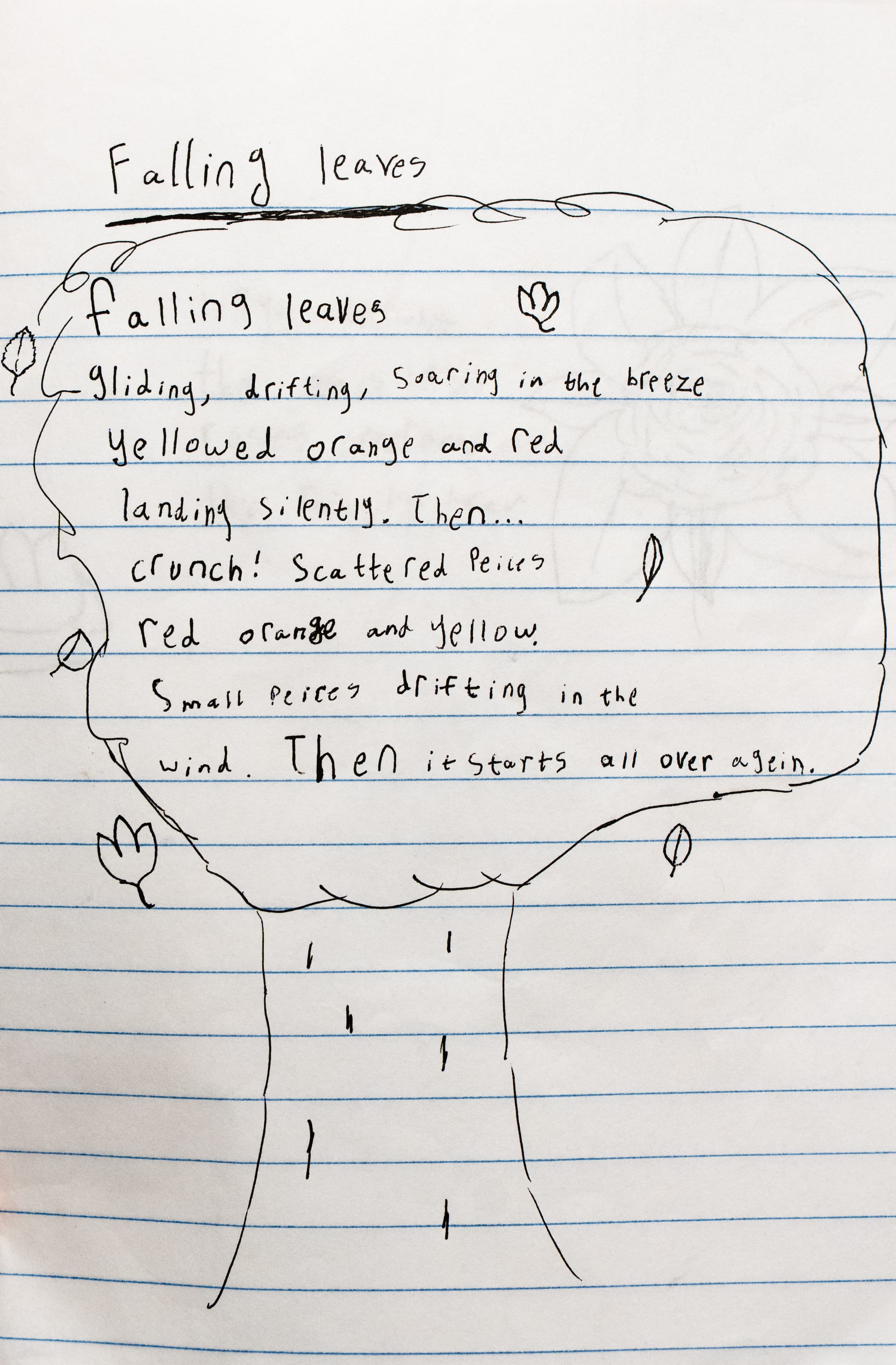
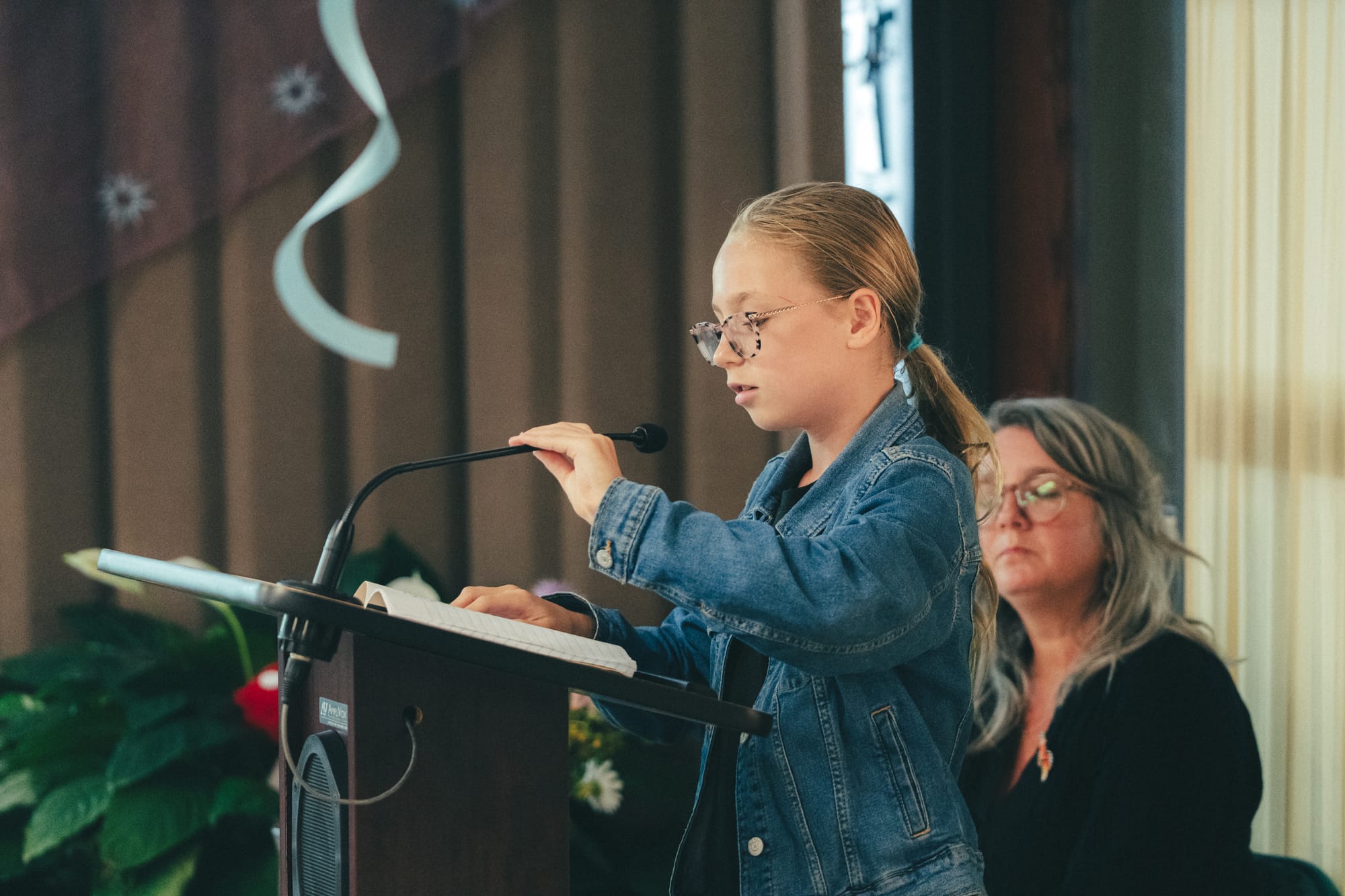
Ingrid, a rising sixth grader, reads a poem she wrote called “Falling Leaves.” Ingrid said she enjoys drawing, and wanted to combine writing with drawing. “All my school notebooks, like half the pages are full of drawings instead of actual work,” she said. “I go through so many notebooks.” (Kelton O'Connell, July 11, 2025)
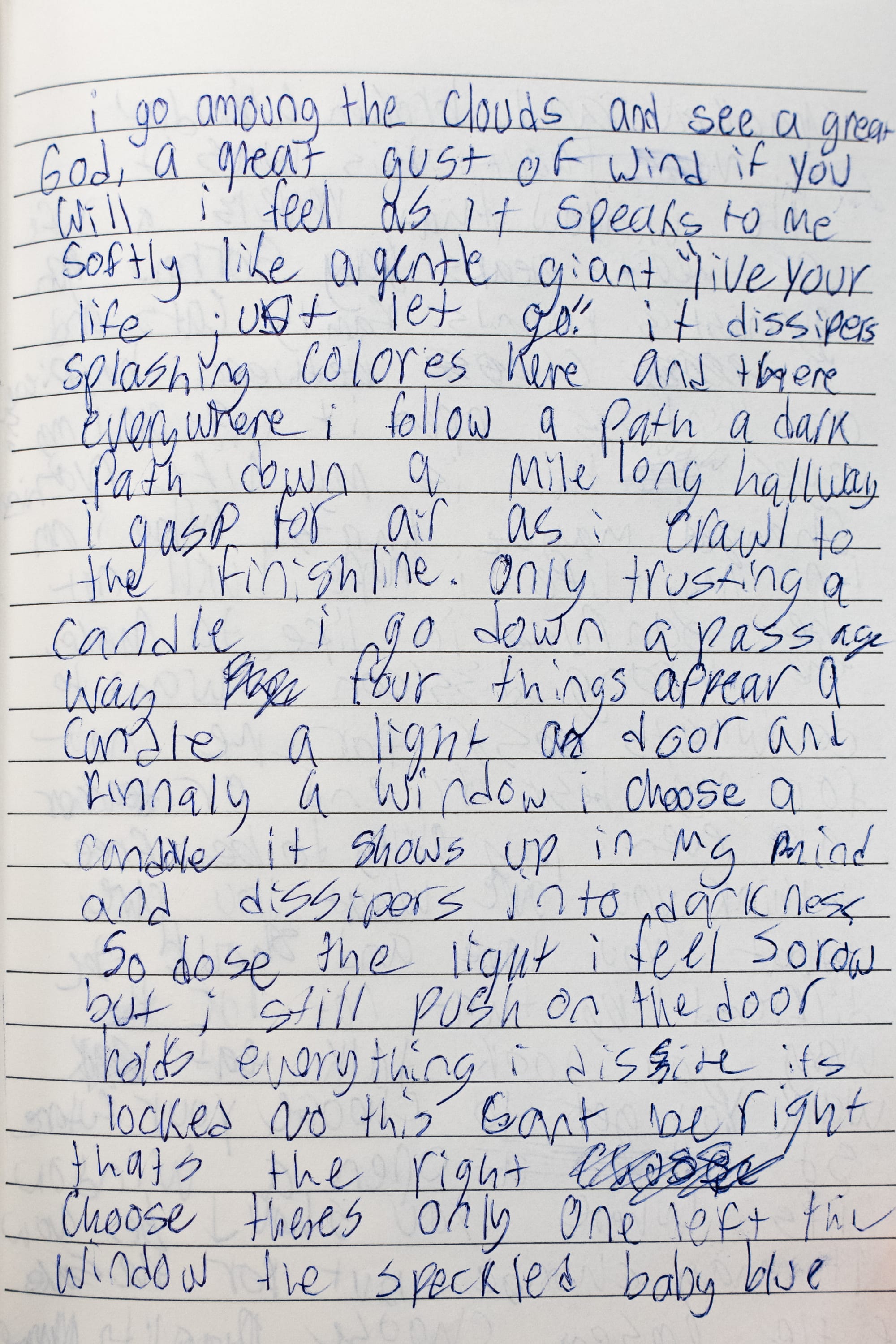
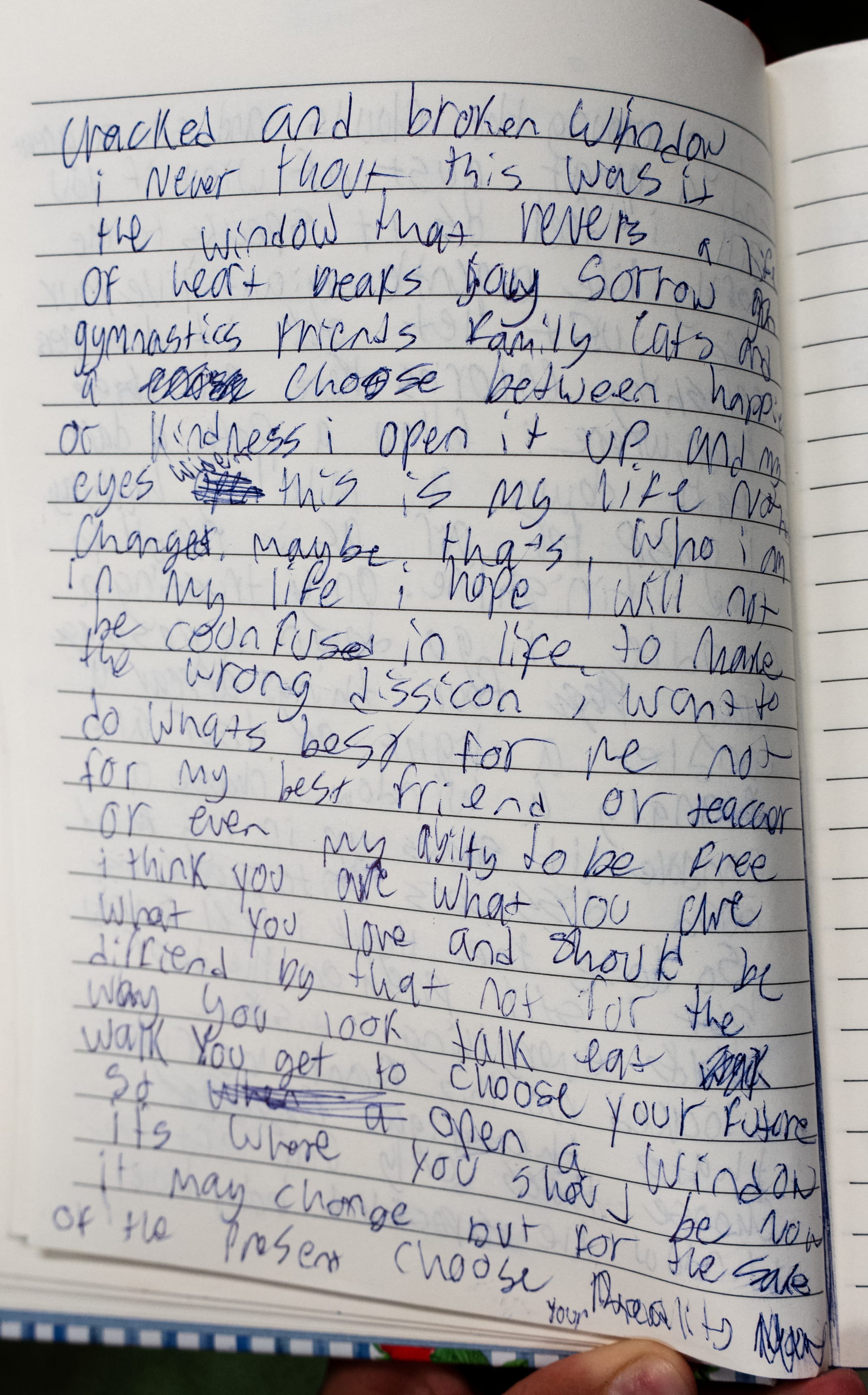
Claire read this piece of writing that does not have a title. She said this piece came from a prompt that began with “I go among the ....” She said, “I love clouds. Whenever I’m on an airplane I look out, and I look at the clouds, and I’ve been wanting to write a piece like that for a while, because it inspires me a lot. It looks like snowy mountains.” (July 11, 2025)
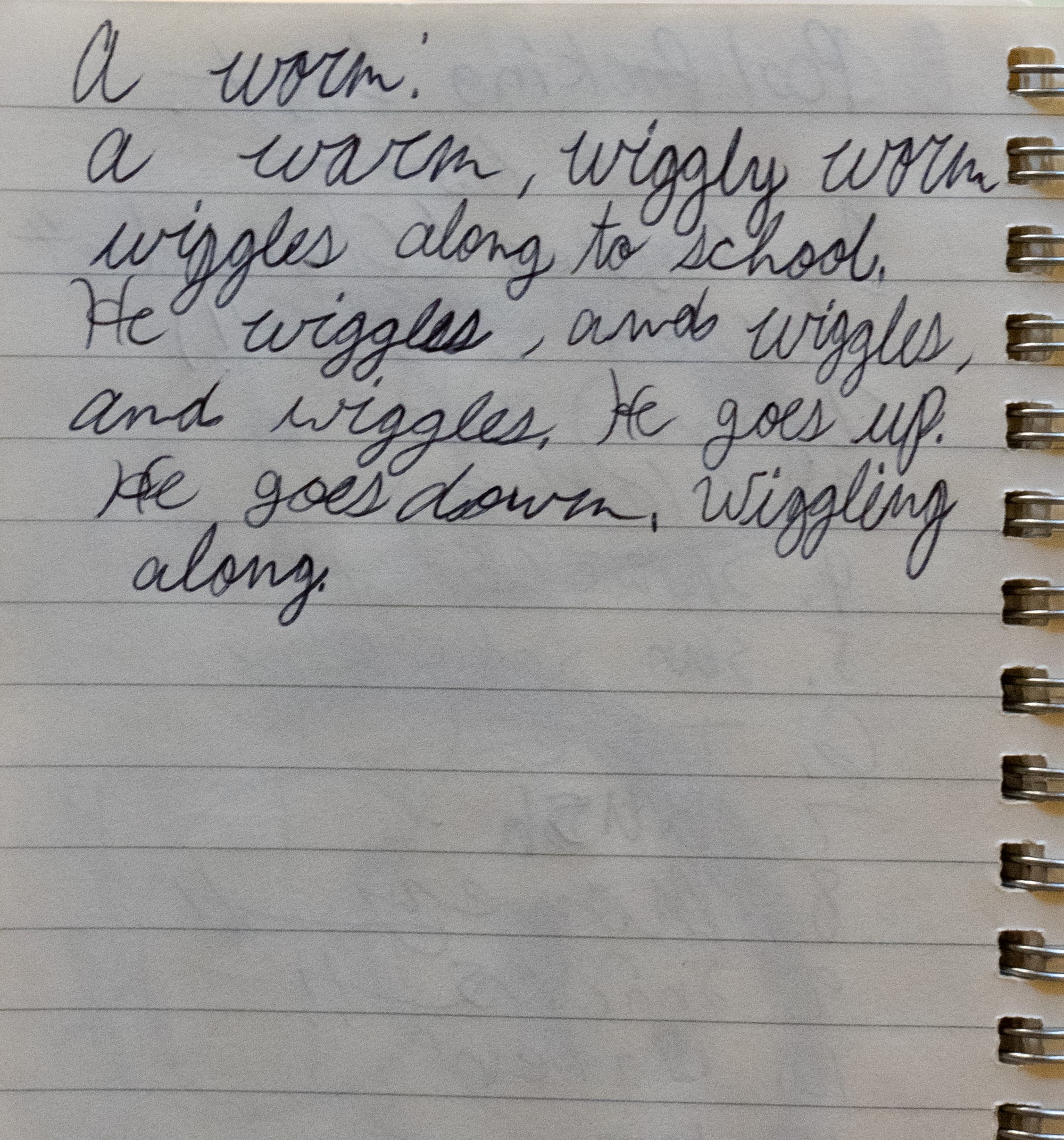
Sir Piggleton
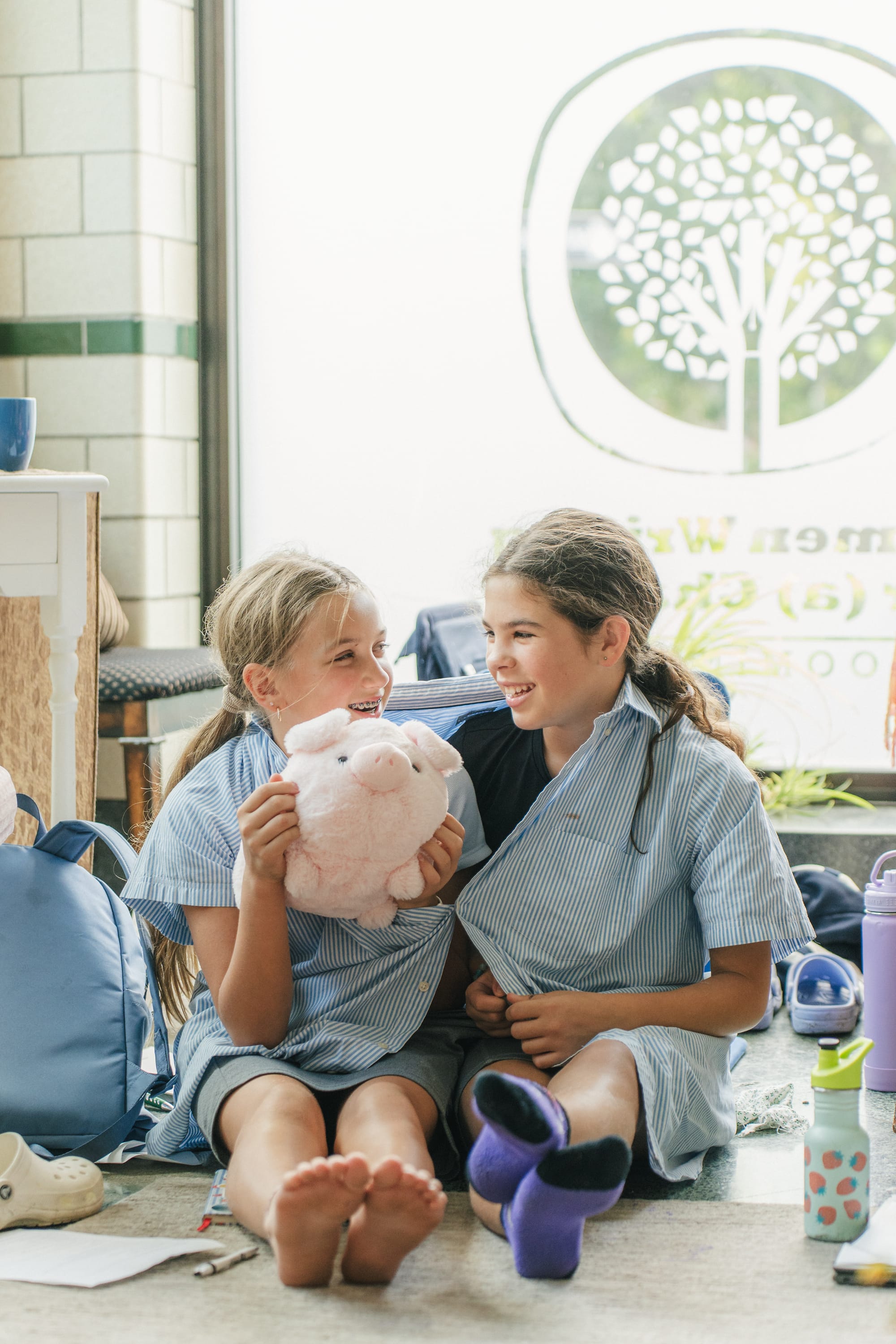
Described as the camp’s mascot, this stuffed pig, which campers Claire and Fiona found at the Book Corner during their trip around downtown Bloomington, is named Sir Jeremy Piggleton, III.
Jackson said, “There’s always some sort of little theme, little something that comes out of the week that they kind of form around.”
Fiona wrote about him:
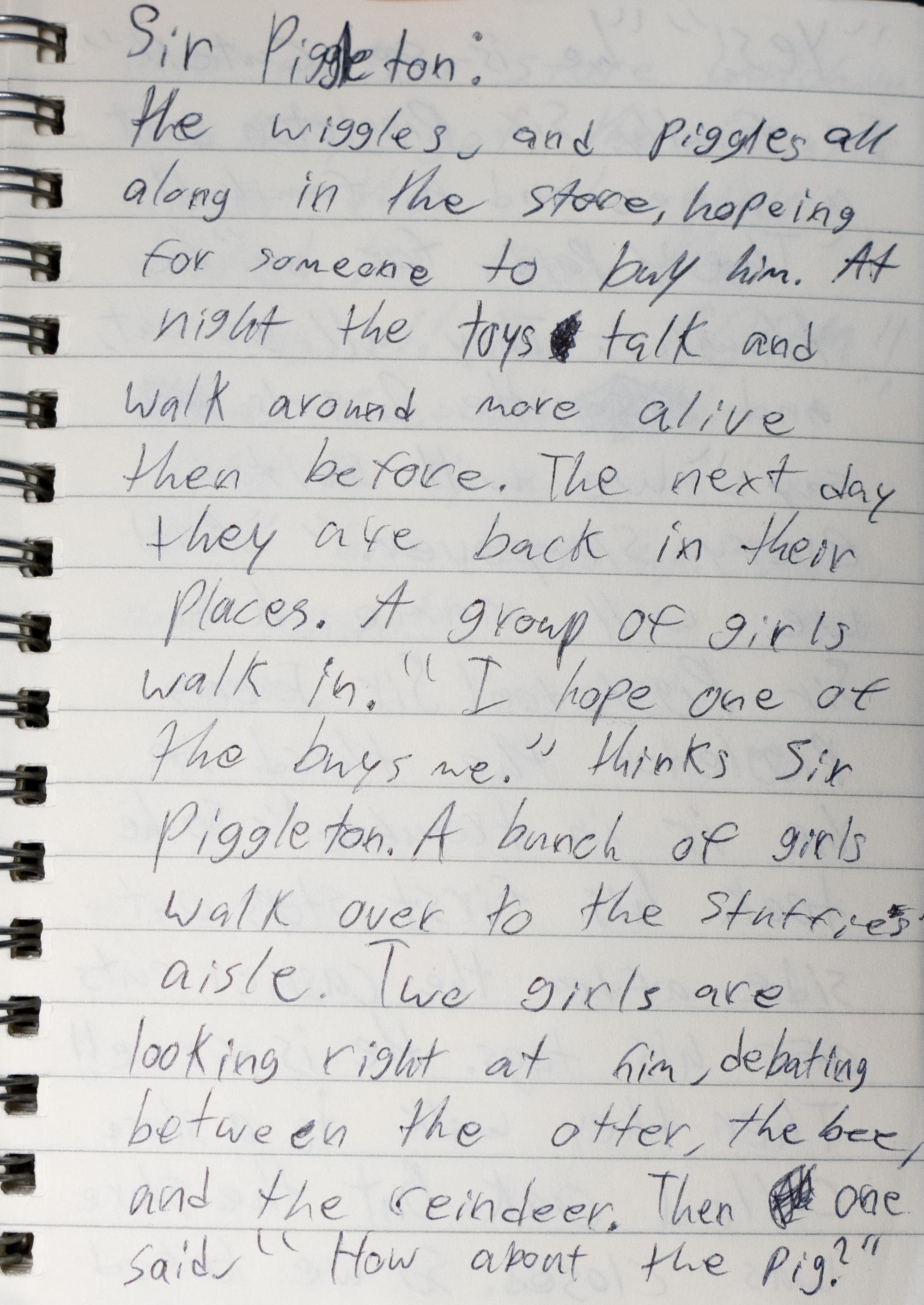
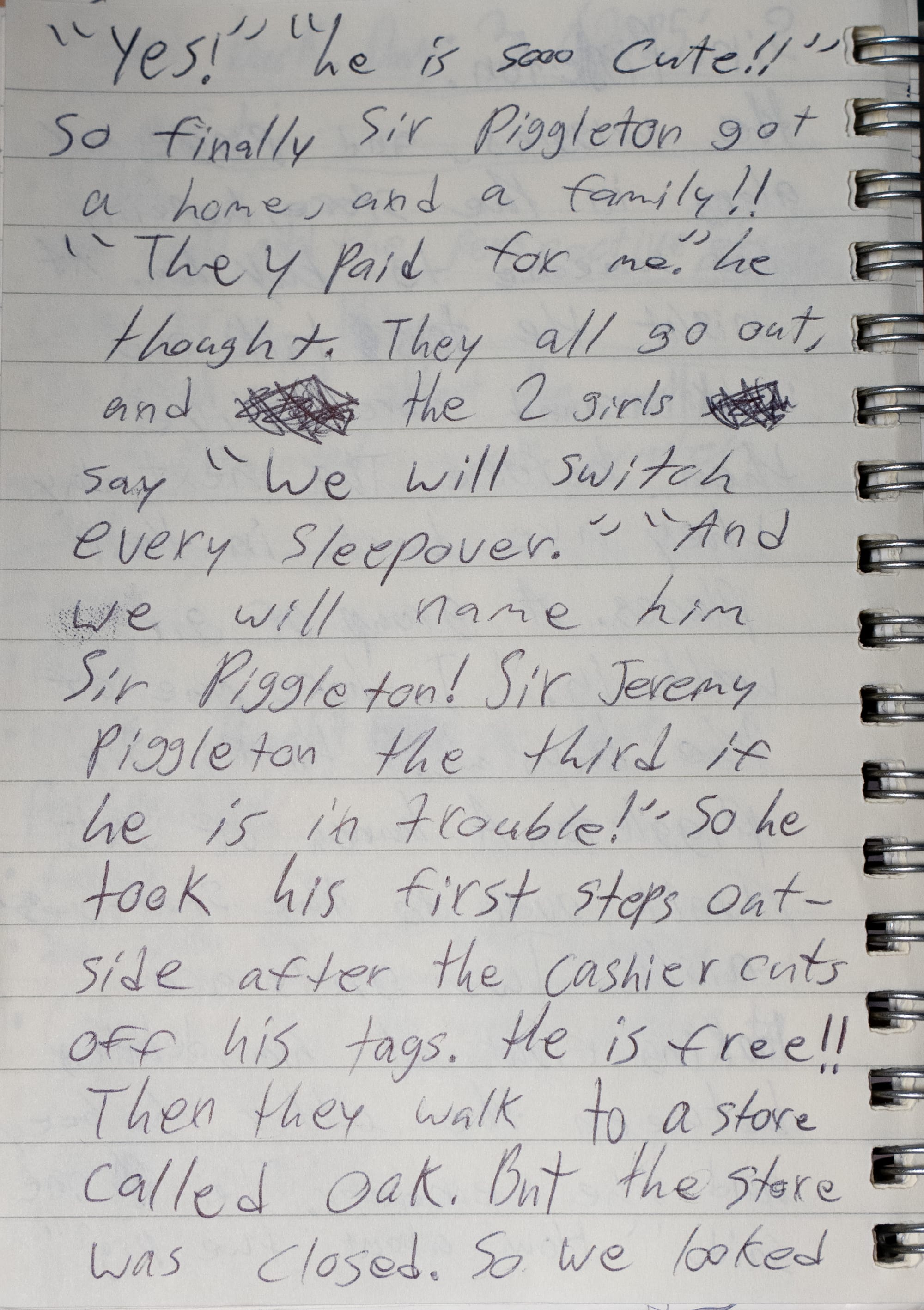
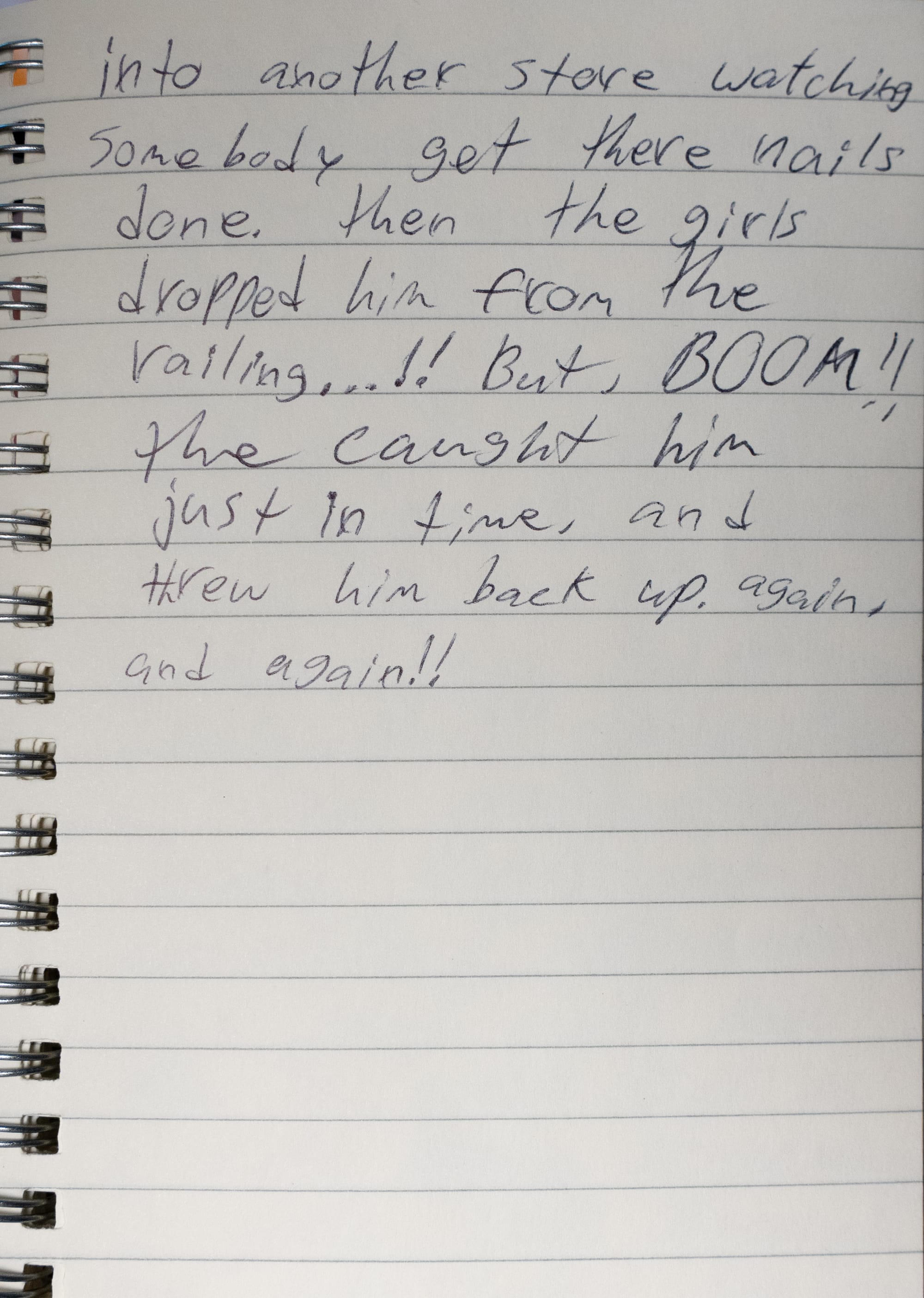
Fiona wrote about Sir Piggleton, the camp's stuffed mascot for the week. (July 11, 2025)

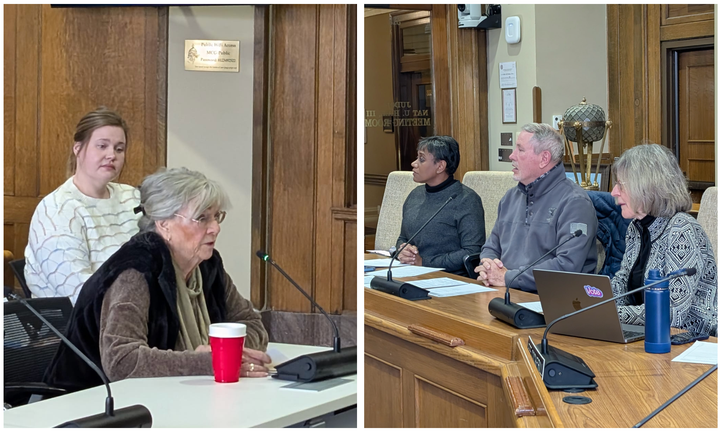

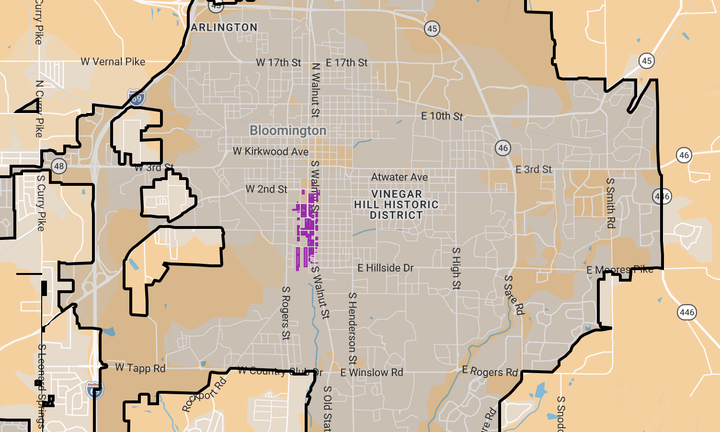
Comments ()